|
The material on this website is intended for educational use only and may not be reproduced for commercial purposes without express permission from the appropriate copyright holder.
Le contenu de ce site Web est destiné à des fins pédagogiques seulement et ne peut être reproduit à des fins commerciales à moins d'en avoir obtenu la permission du titulaire du droit d'auteur approprié.
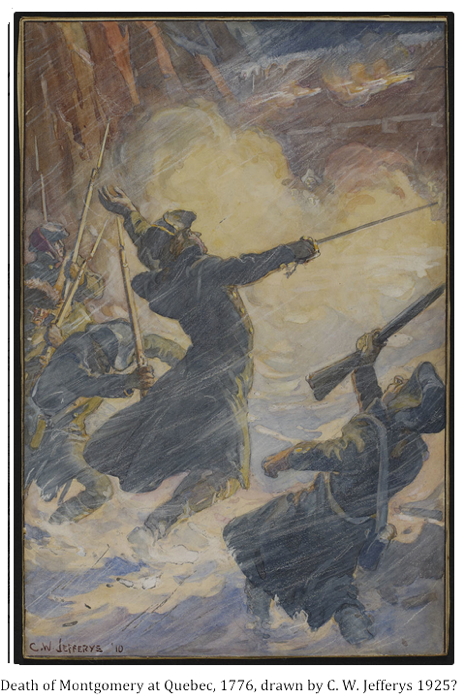
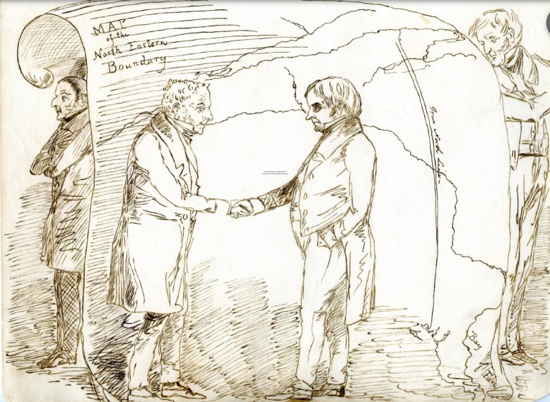
Webster-Ashburton Treaty, 1842 Fort Kent, Maine
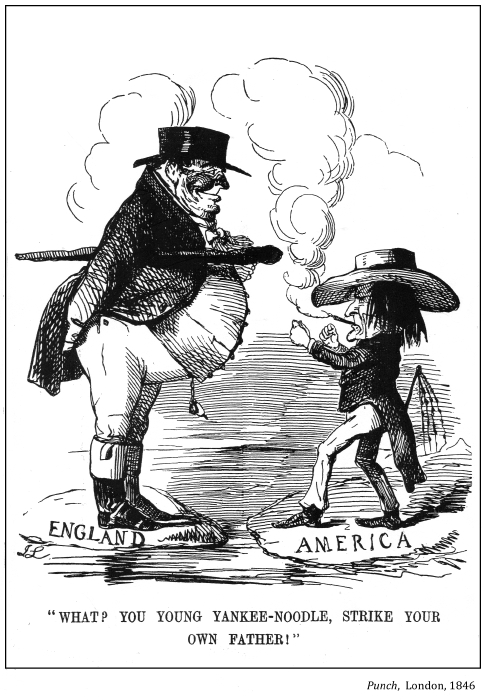
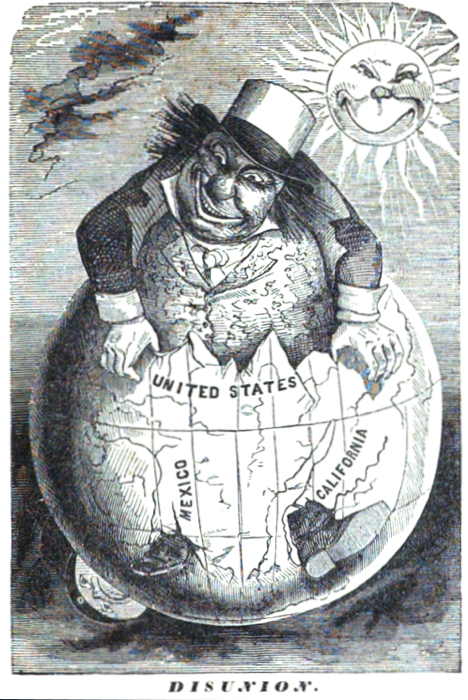
Yankee Notions, New York, July 1852
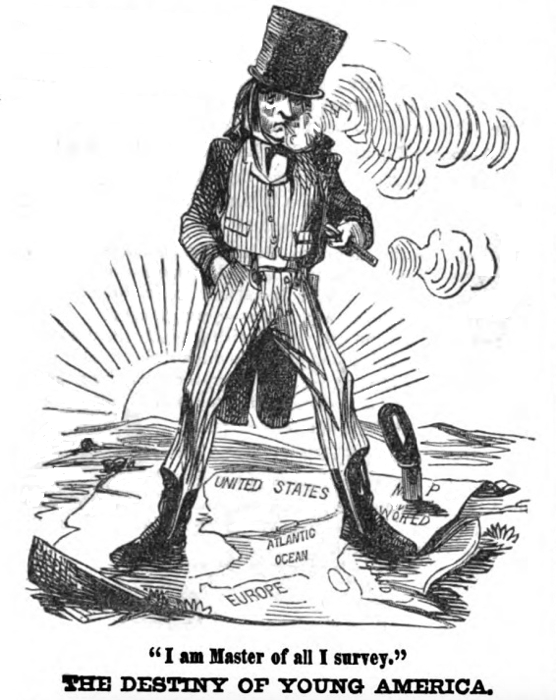
Yankee Notions, New York, October 1852
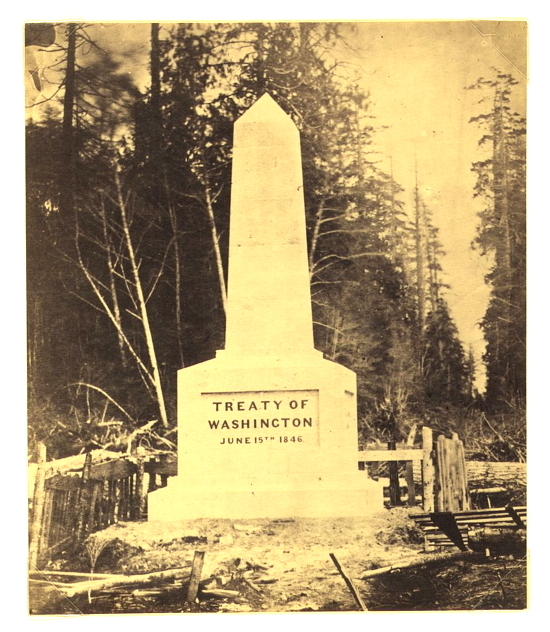
Boundary monument at Point Roberts, Treaty of Washington 15th June 1846, created 1861, LC2005680441
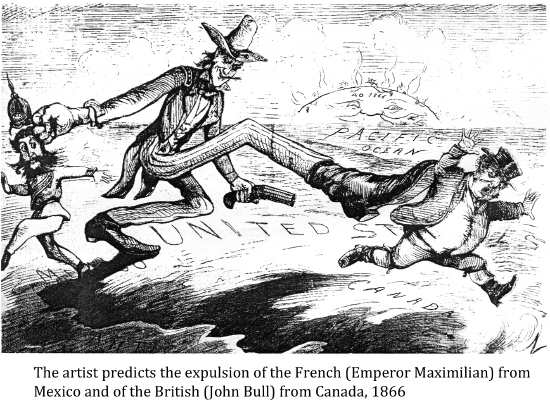
"I know that Nature designs that this whole continent, not merely these thirty-six states, shall be, sooner or later, within the magic circle of the American union."
William Seward, Secretary of State, 1867
"When the experiment of the 'Dominion' shall have failed, as fail it must, a process of peaceful absorption will give Canada here proper place in the Great North American republic."
New York Times, August 1867

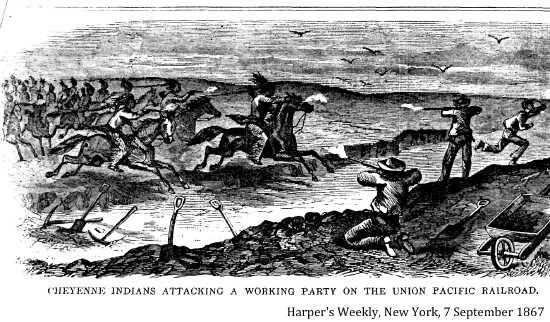
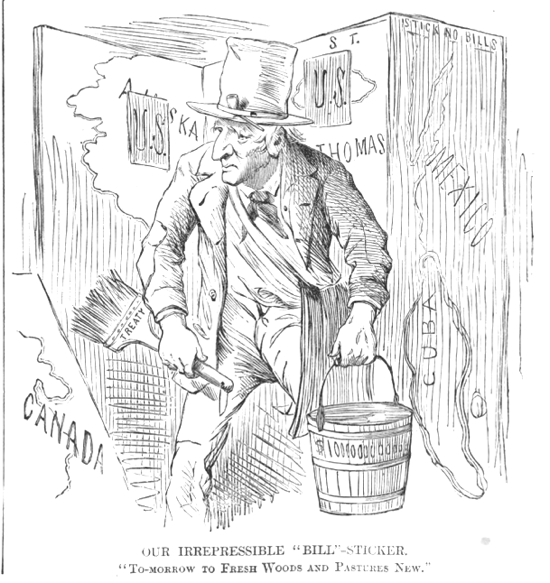
Harper's Weekly, New York, 13 February 1869
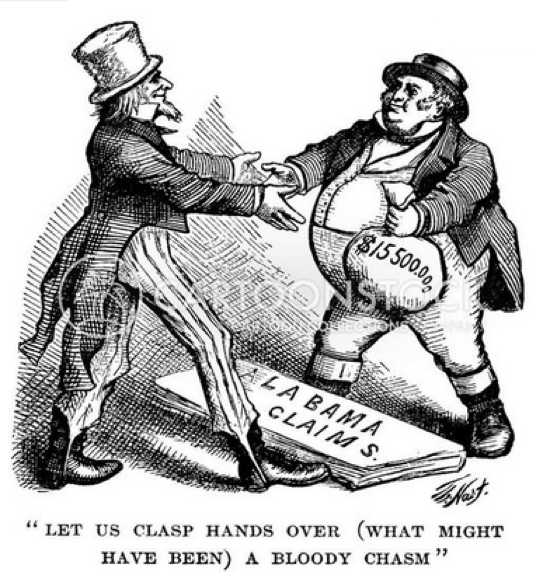
Thomas Nast. Alabama Claims, 1872
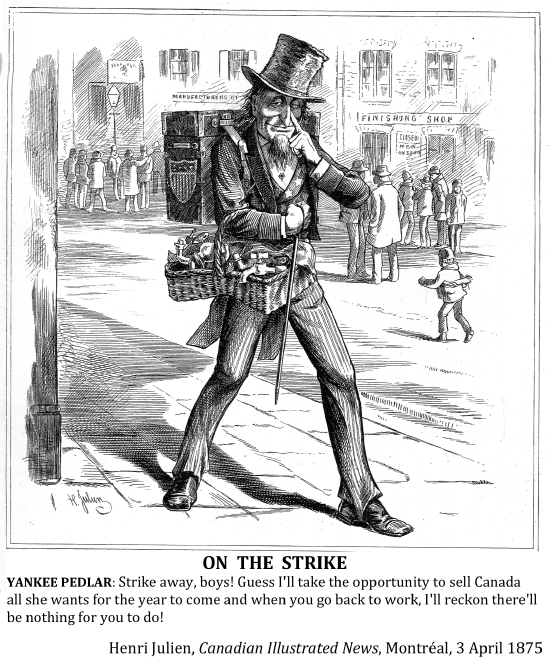
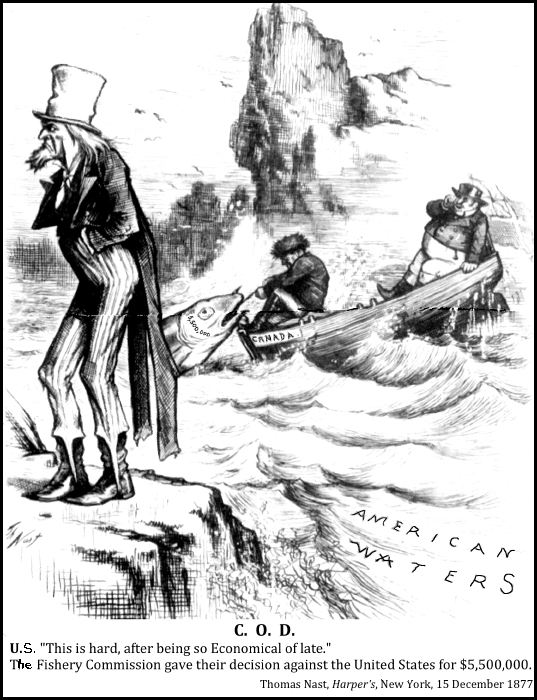
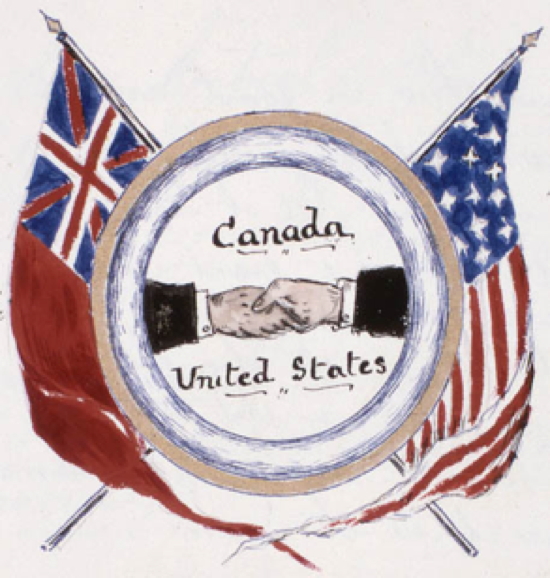
Canada - United States. [A depiction of hands shaking across the border] [1878]. 55. C anada - États-Unis. [Représentation d'une poignée de mains à la frontière] [1878]. LAC, Acc. No. 1959-82-26R:B, John Muir, 1878
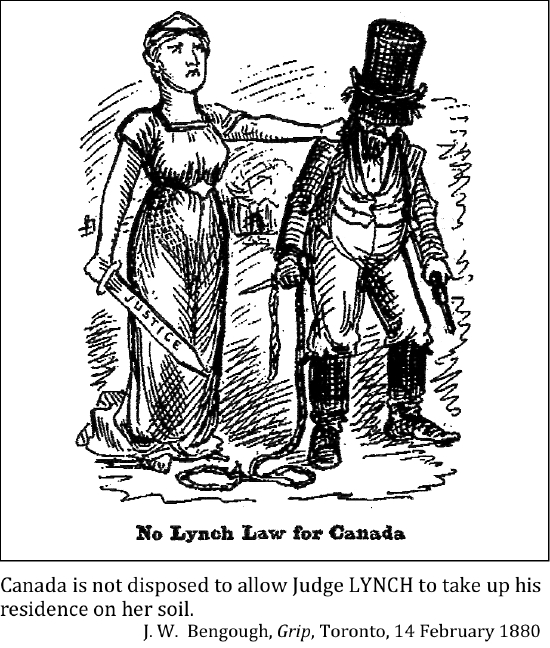
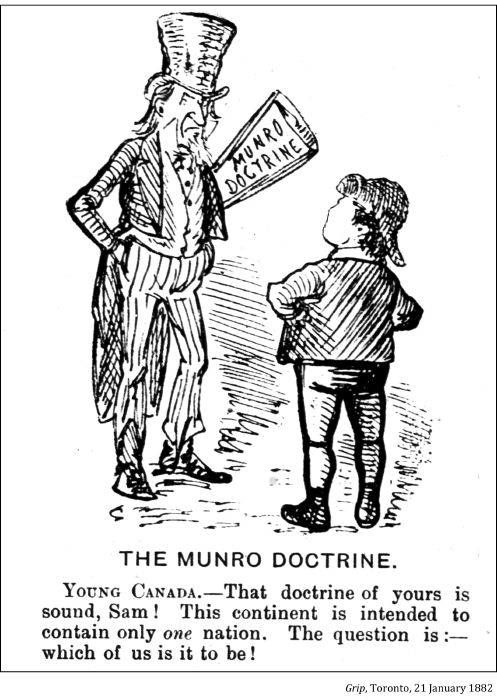
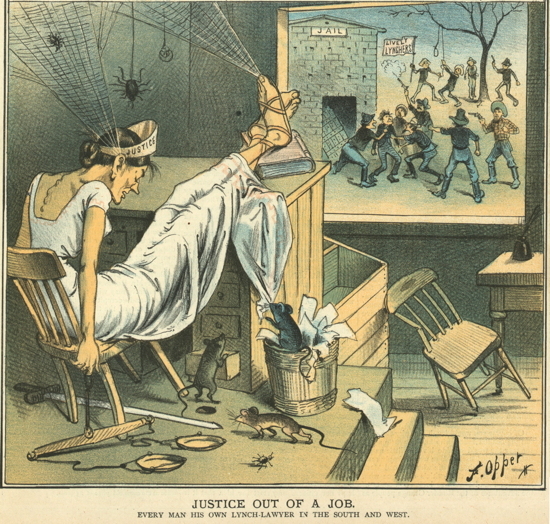
Justice out of a job, Puck, New York, 4 July 1883, Frederick Burr Opper. Public domain, via Wikimedia Commons
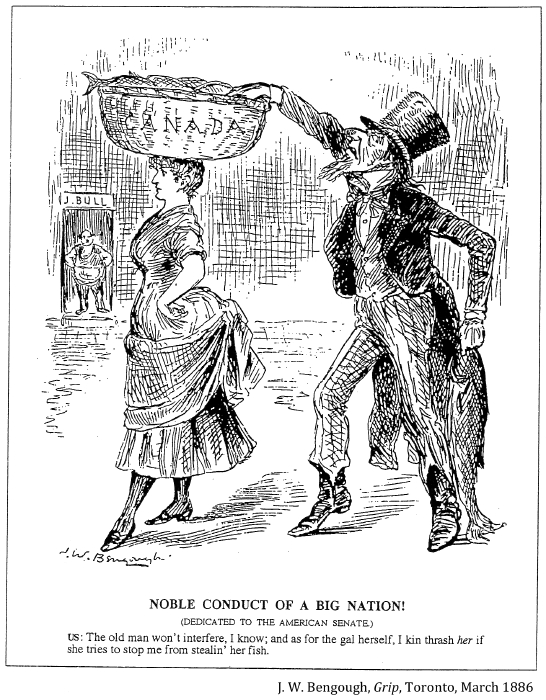
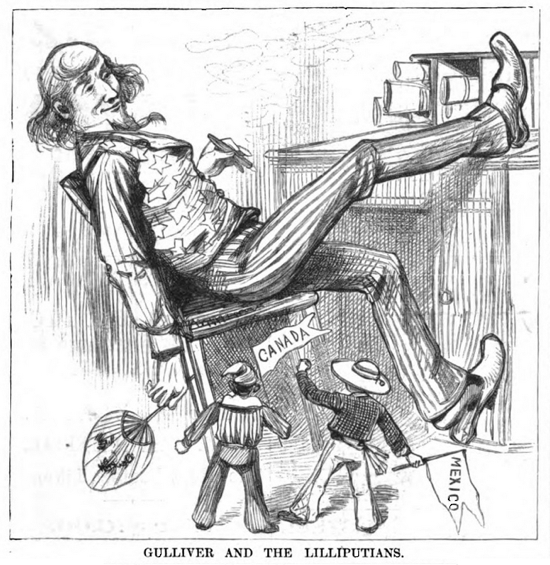
Frank Leslie's Illustrated Magazine, New York, 7 August 1886
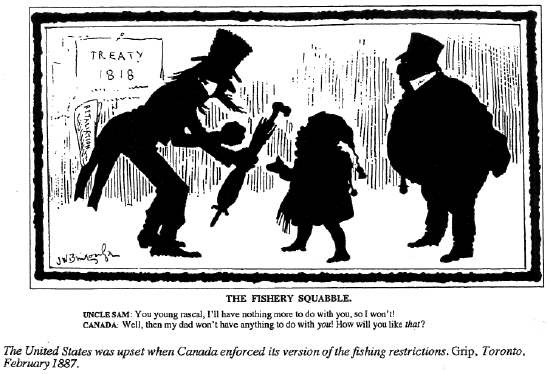
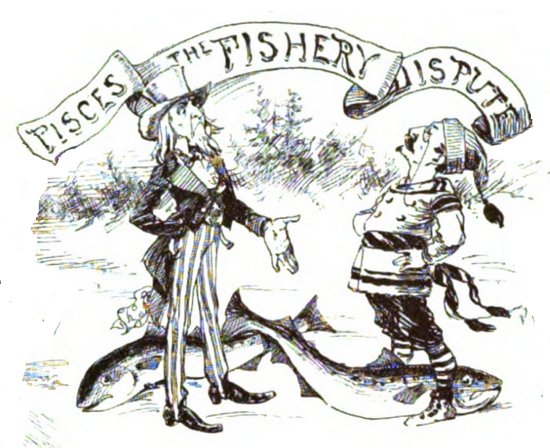
Life, New York, 10 February 1887
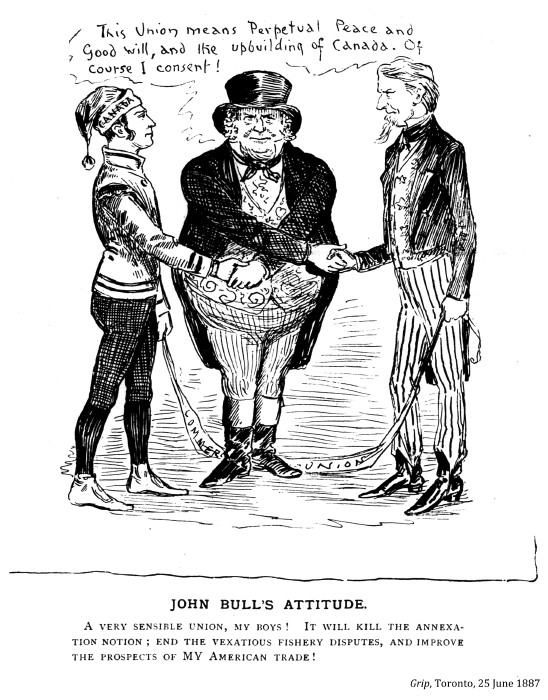
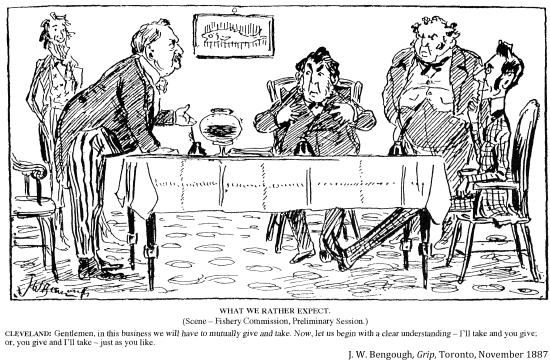
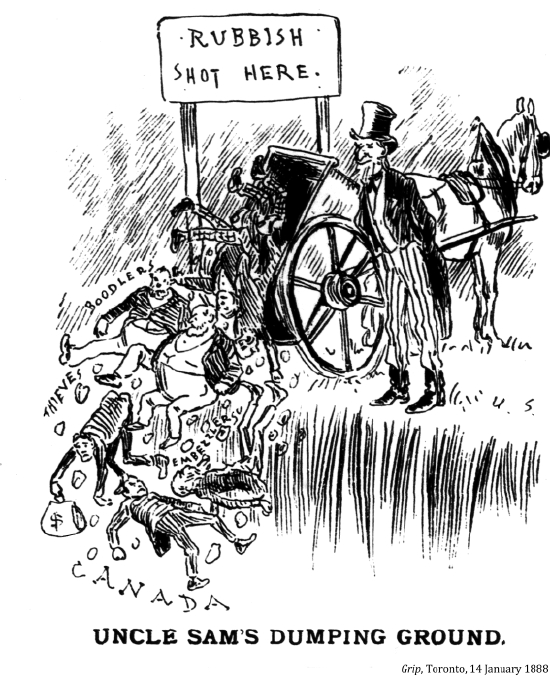
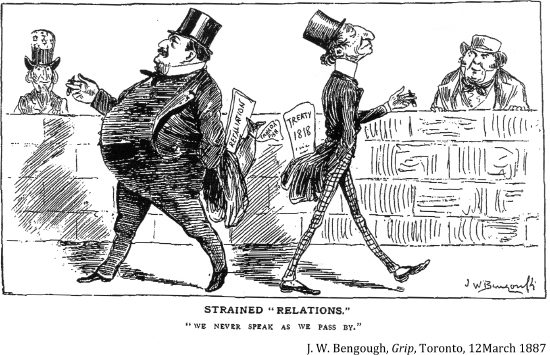
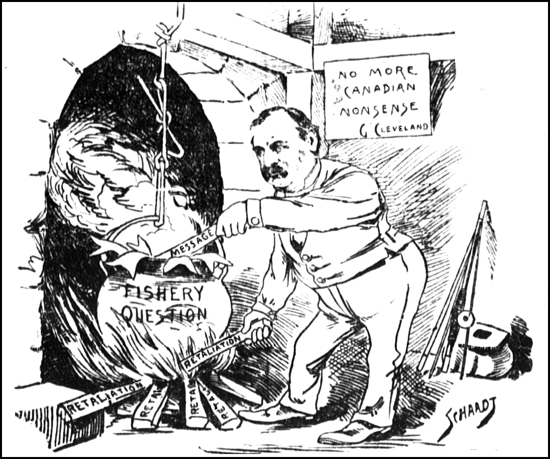
The Evening World, New York, 24 August 1888
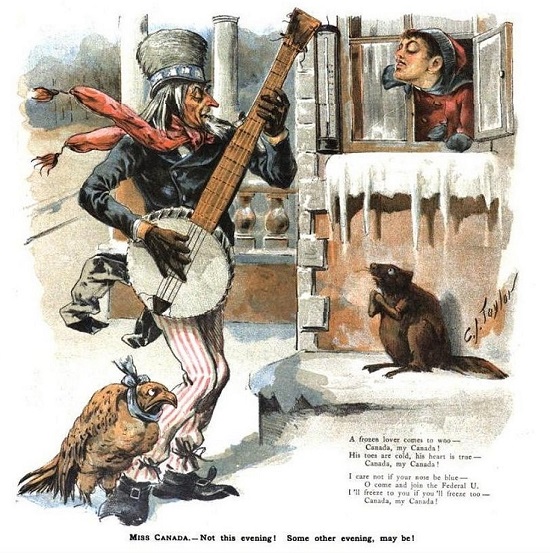
Puck, New York, 26 December 1888. LC-USZ62-58804
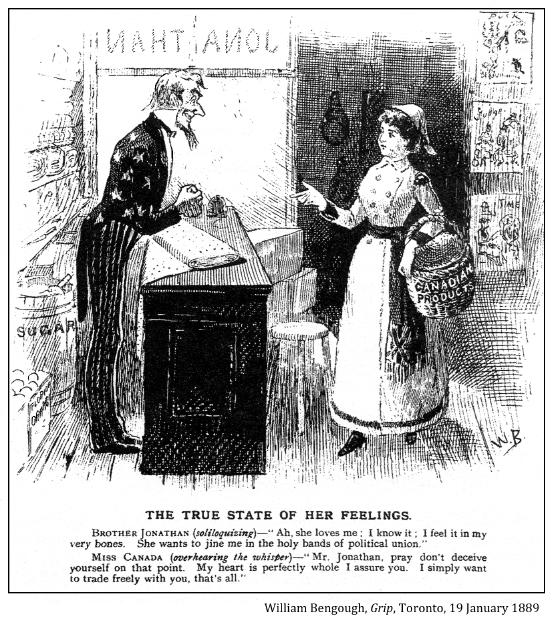
"The frontier settlements in Canada were orderly, while the revolver, the bowie-knife, and 'Judge Lynch' ruled along the borders of civilization in the United States."
Col. George Taylor Denison, 1 February 1889
"Canada is like an apple on a tree just beyond our reach. Let it alone, and in due time it will into our hands."
James G. Blaine, Secretary of State, 1889-1892
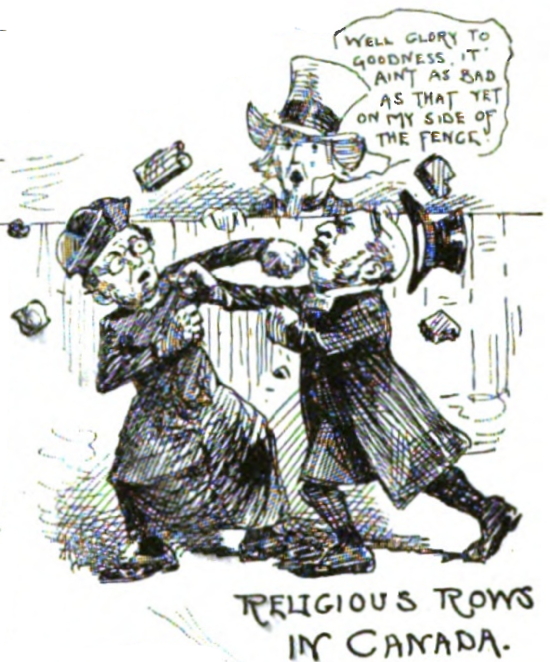
Life, New York, 5 March 1890
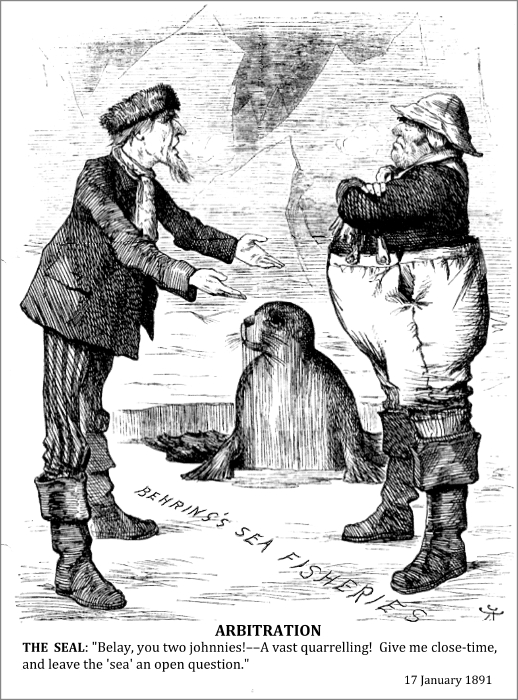
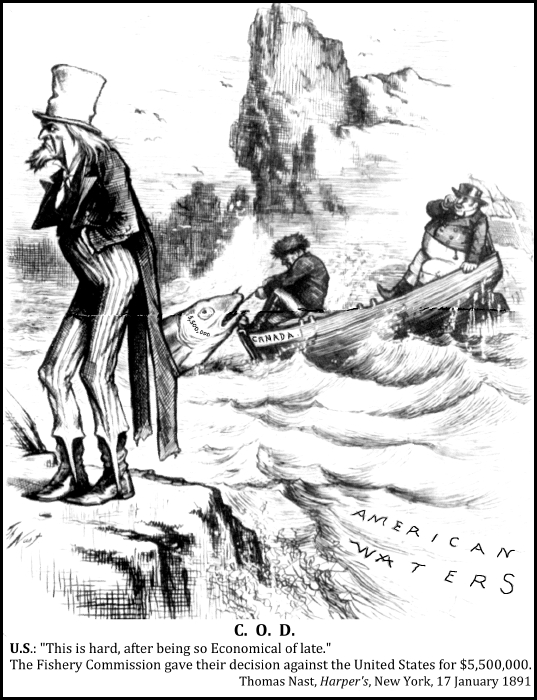
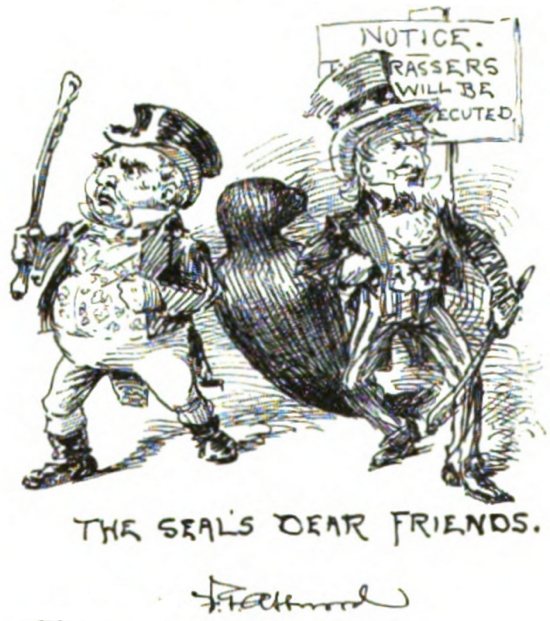
Life, New York, 9 July 1891
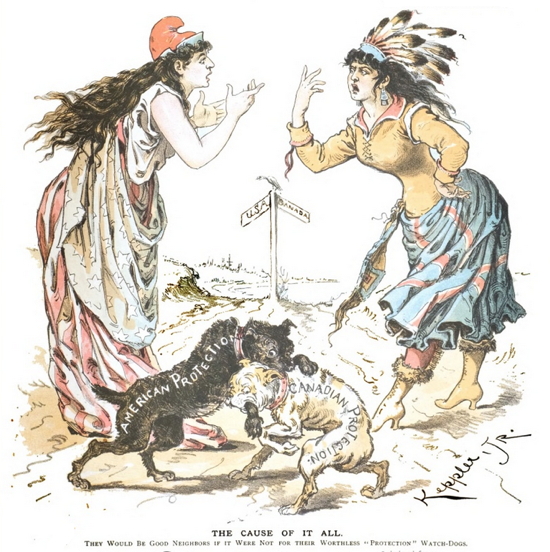
Joseph Keppler, Puck, New York, 7 September 1892
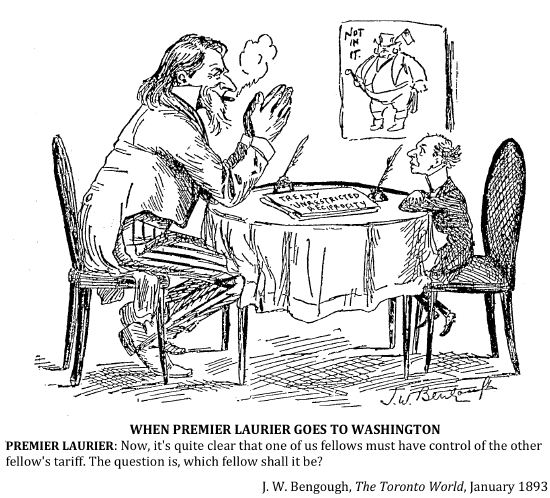
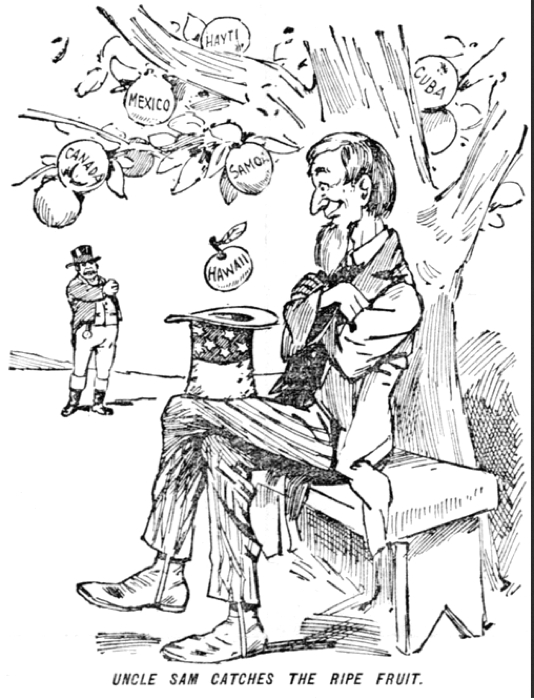
Uncle Sam Catches the Ripe Fruit, The Morning Call, San Francisco, 29 January 1893
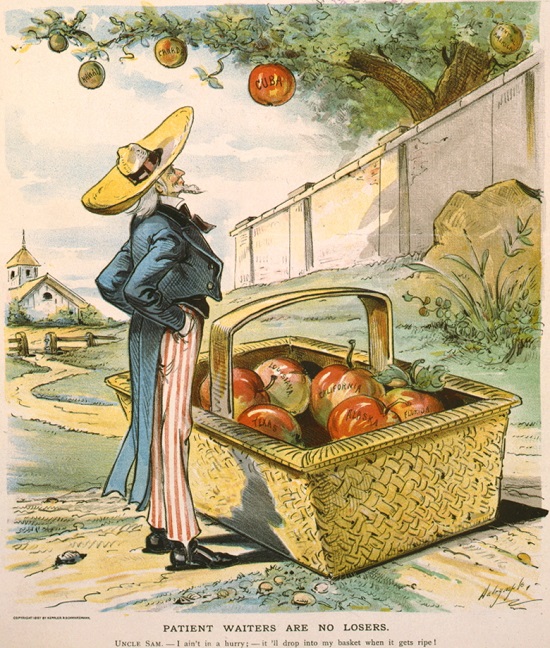
PATIENT WAITERS ARE NO LOSERS.
UNCLE SAM: "I ain't in a hurry: it'ill drop into my basket when it gets ripe!
Louis Dalrymple, Puck, New York, 13 January 1897. LC-USZC4-4133
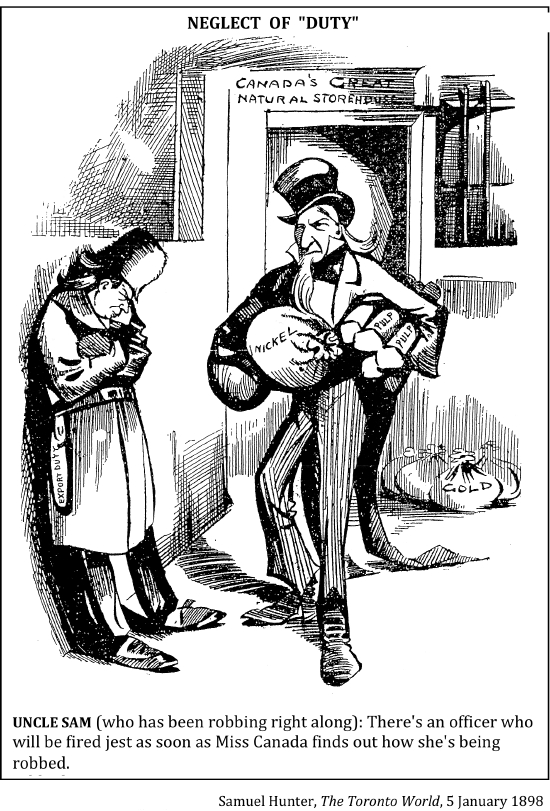
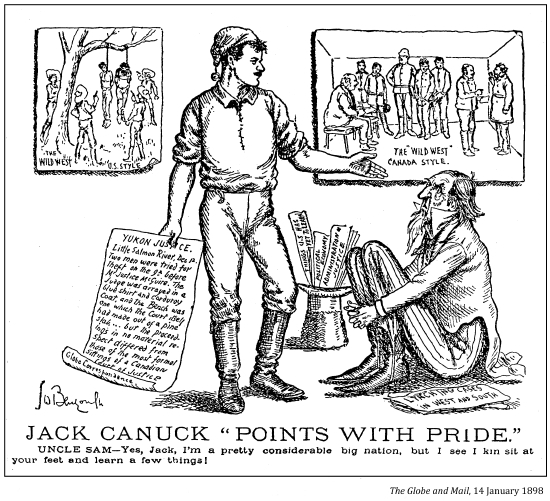

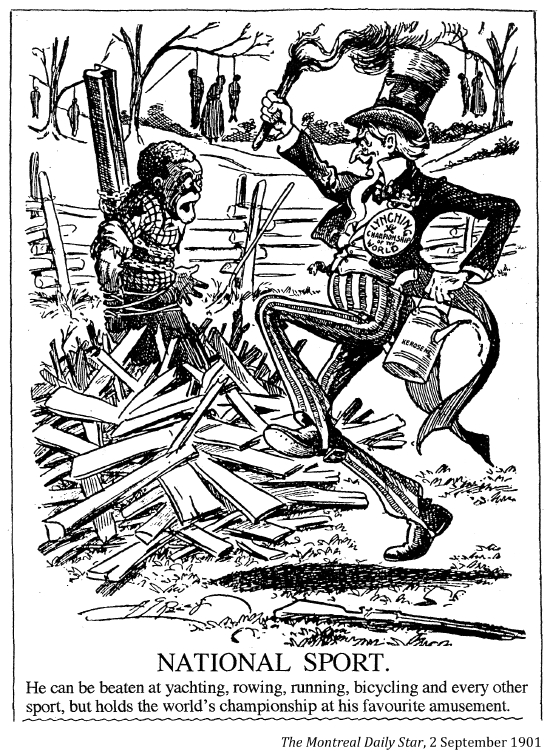
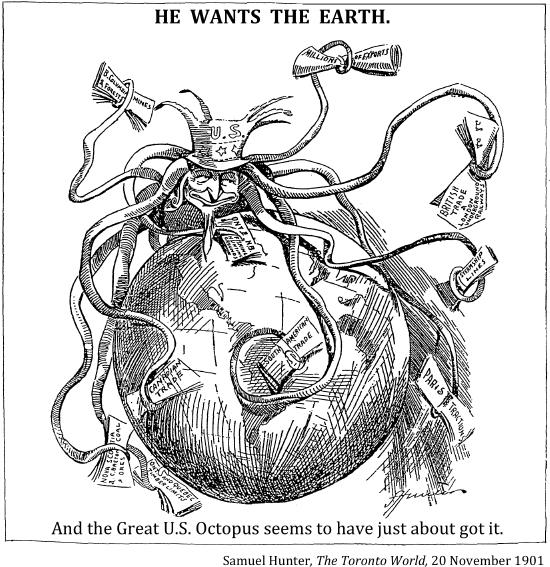
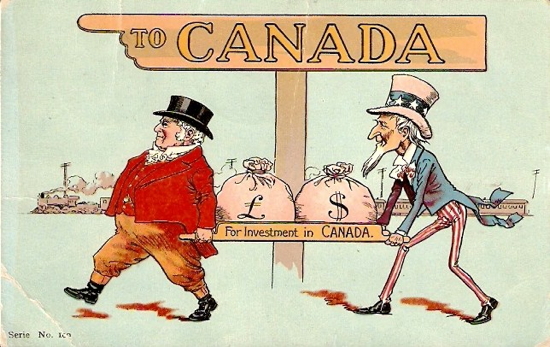
To Canada, 1903
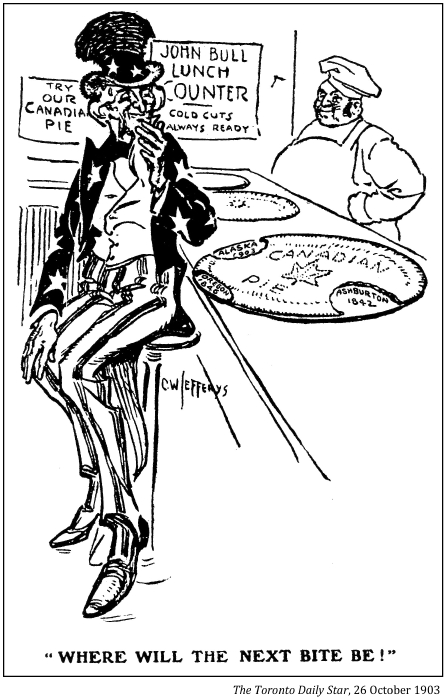
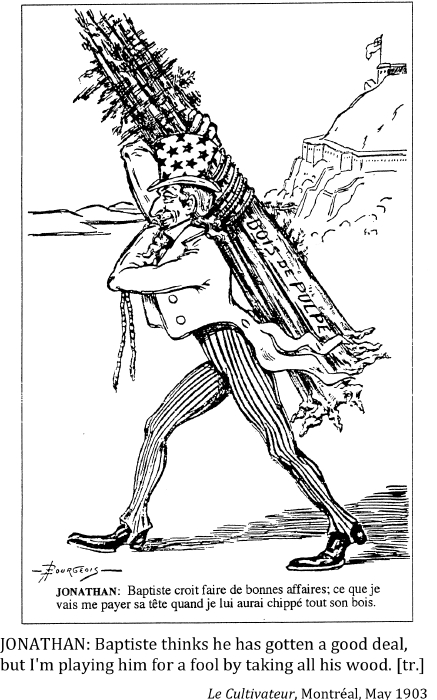
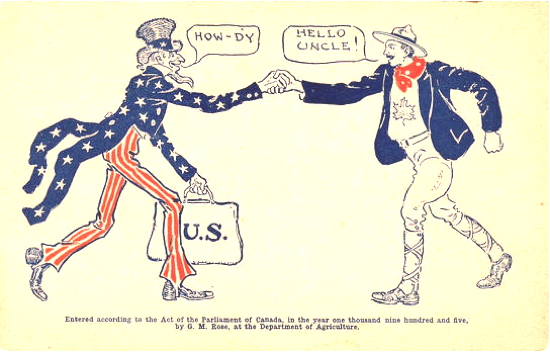
G. M. Rose, postcard, 1905
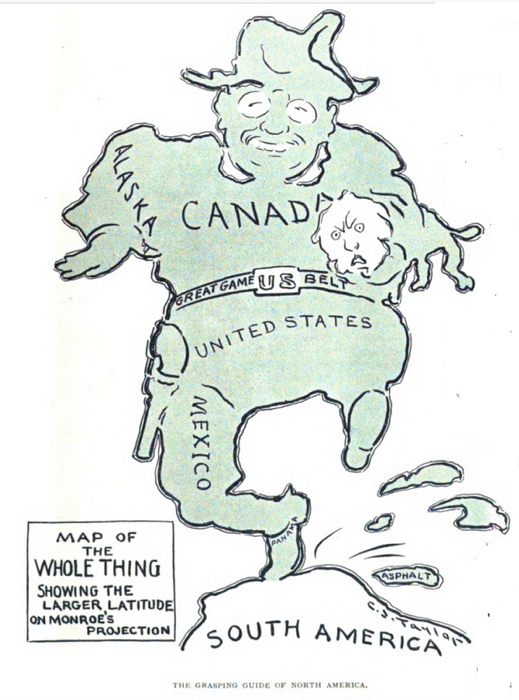
Life, New York, 11 May 1905
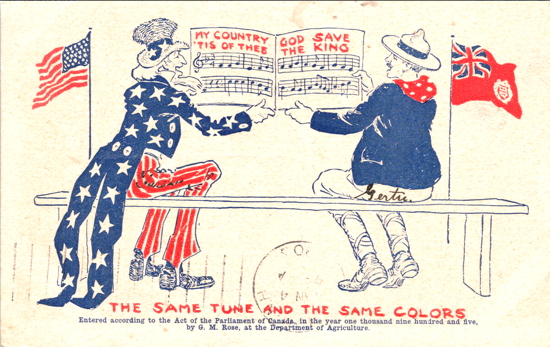
G. M. Rose, postcard, 1906
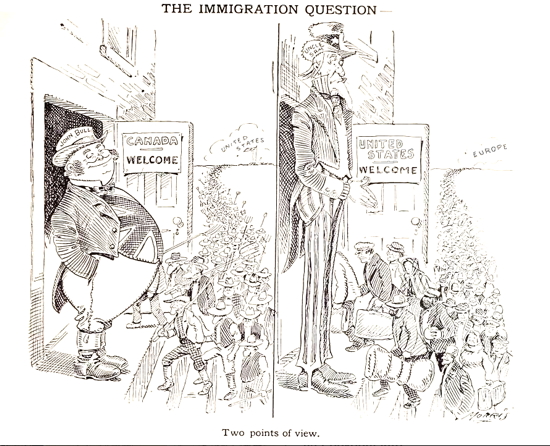
William Morris, Spokesman-Review Cartoons, Spokane, Washington, 1908
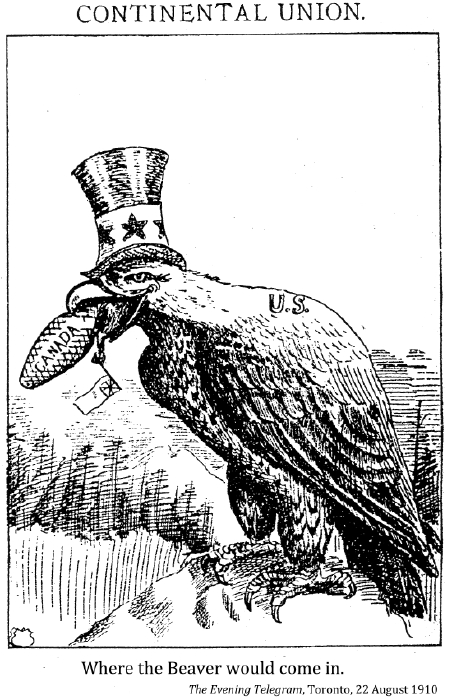
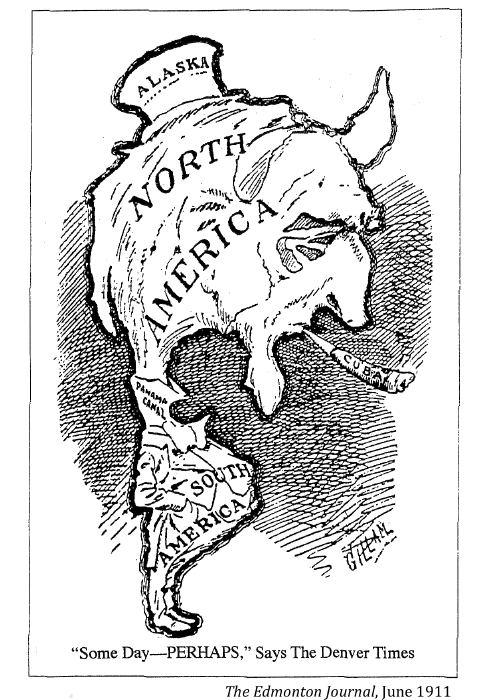
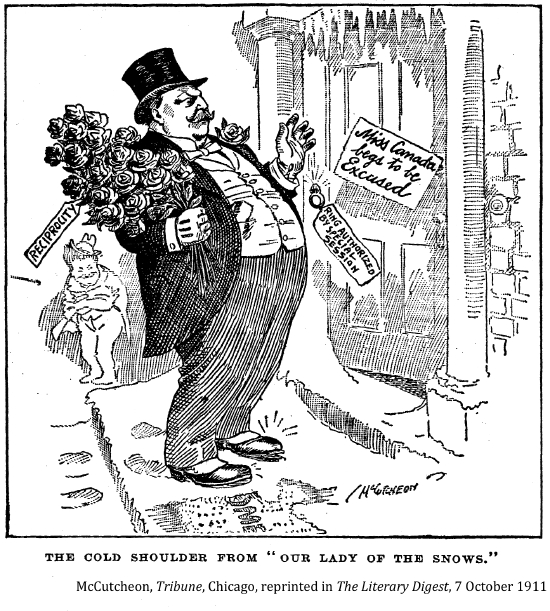
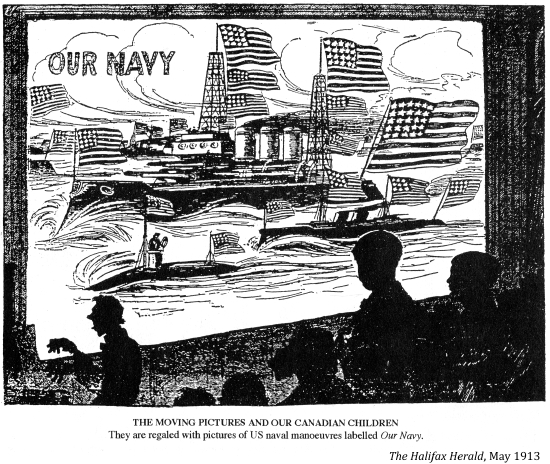
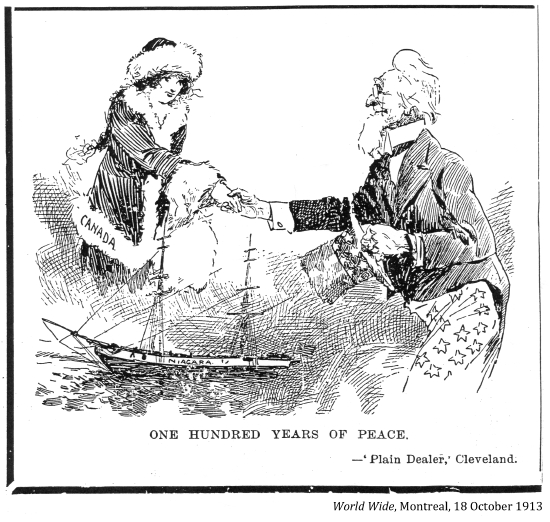
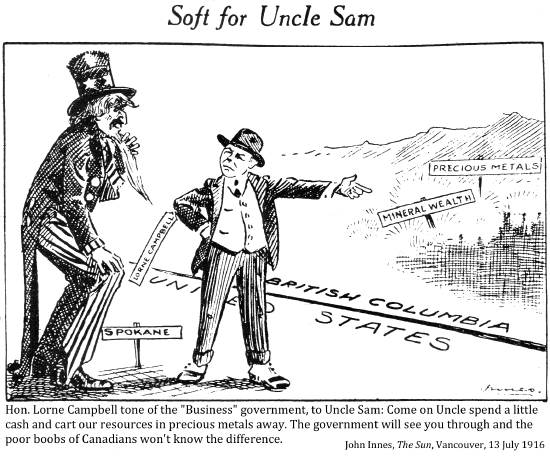
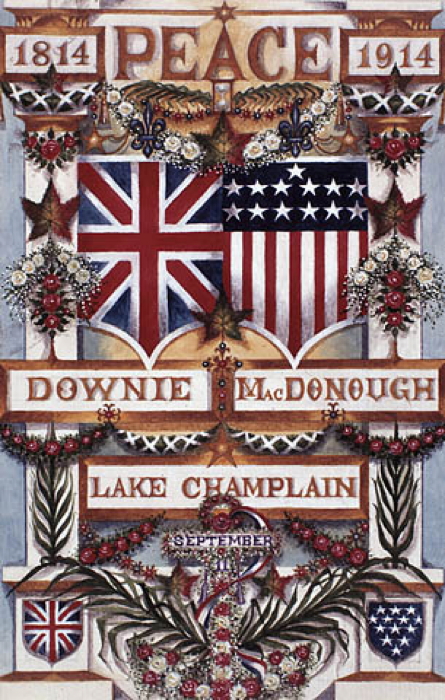
Conception patriotique, « The Centennial of Peace ». LAC, Acc. No. 1937-130-3,
Sadie Stull, 1914
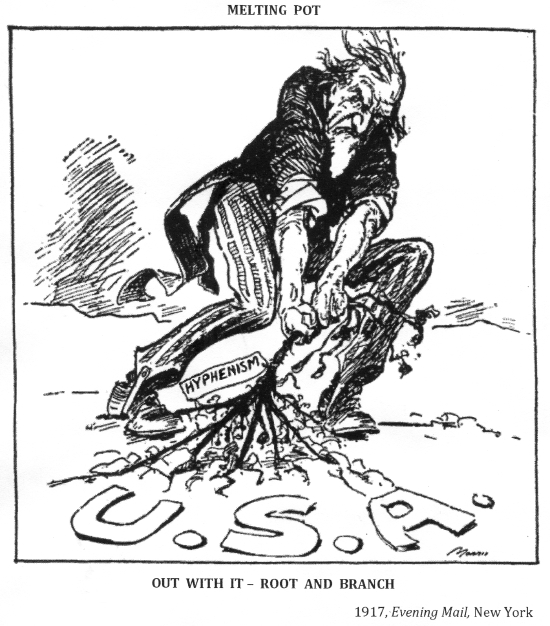
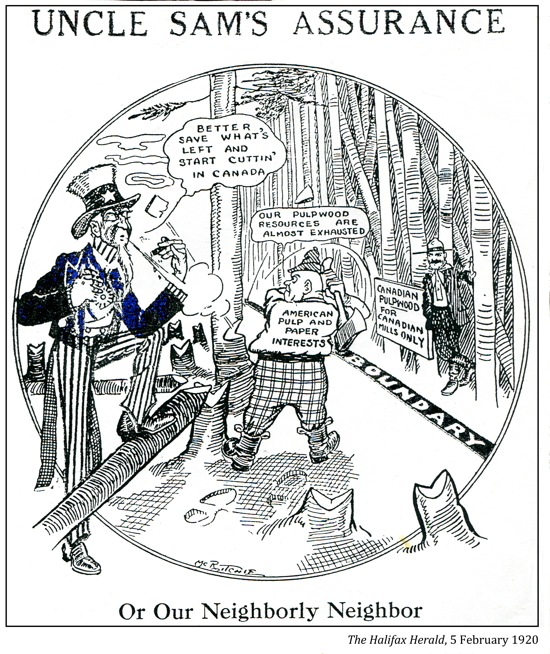
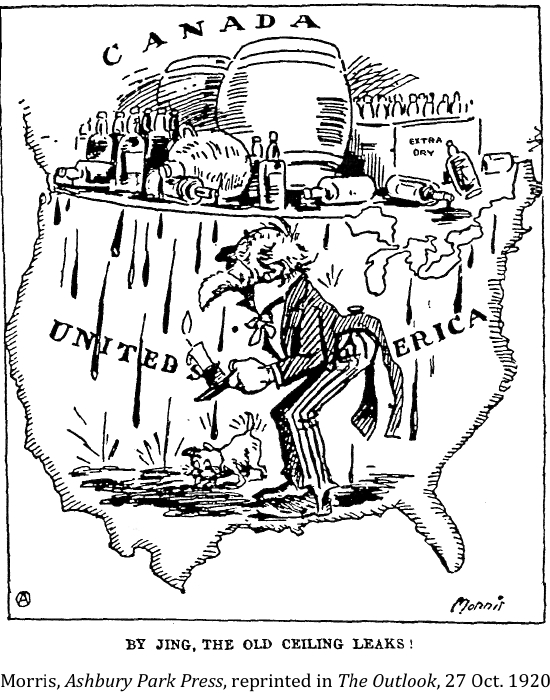
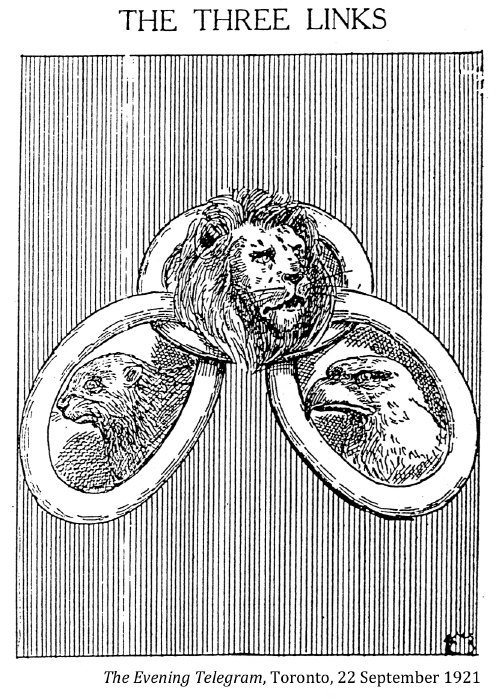
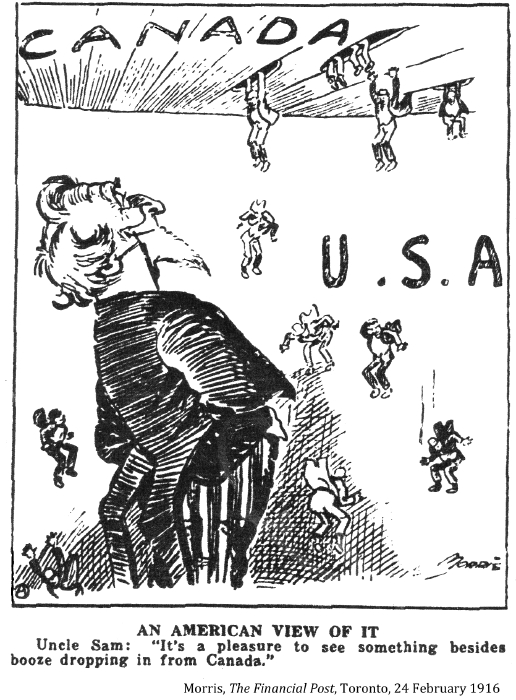
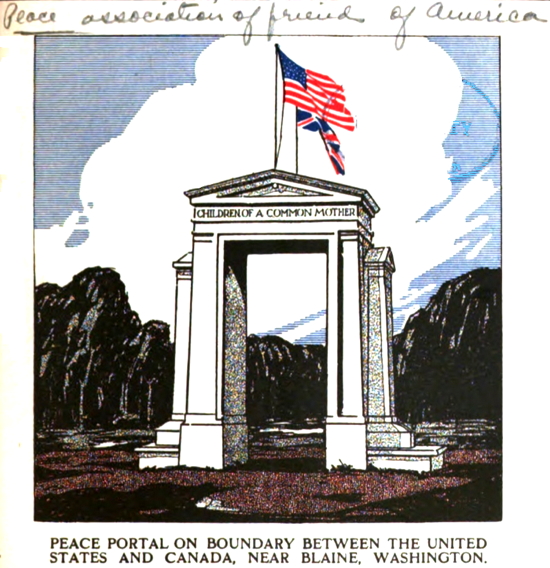
The Messenger of Peace, Richmond, Indiana, August 1922
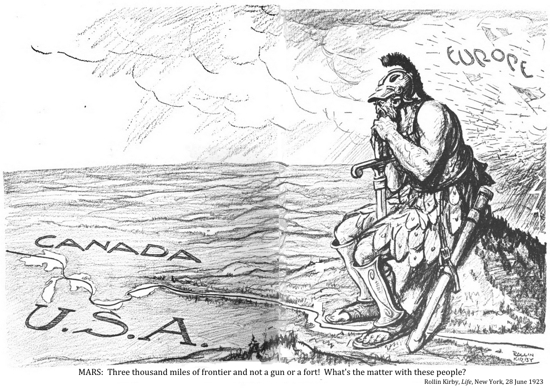
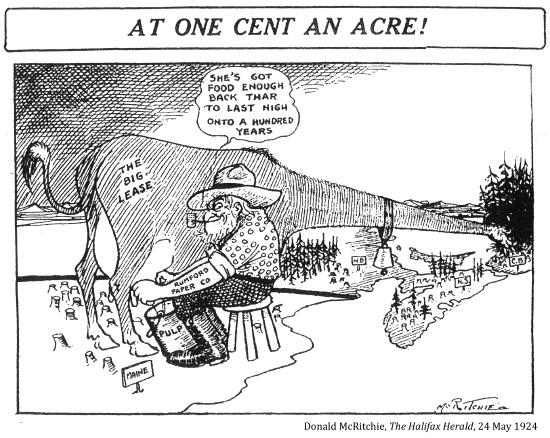
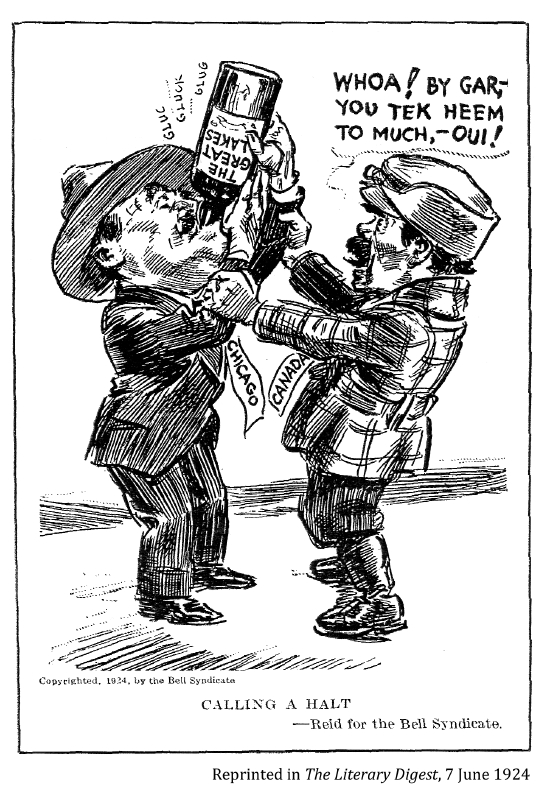
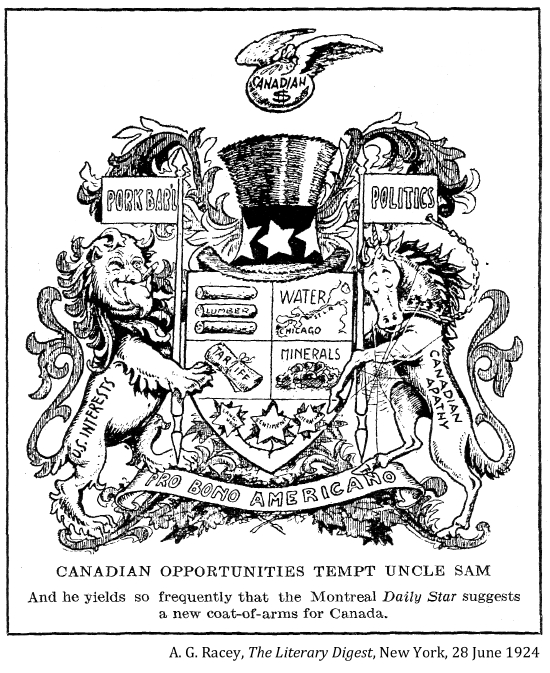
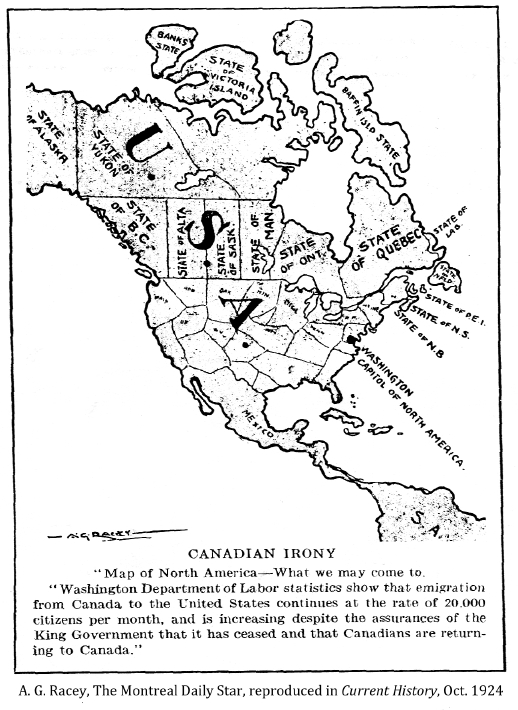
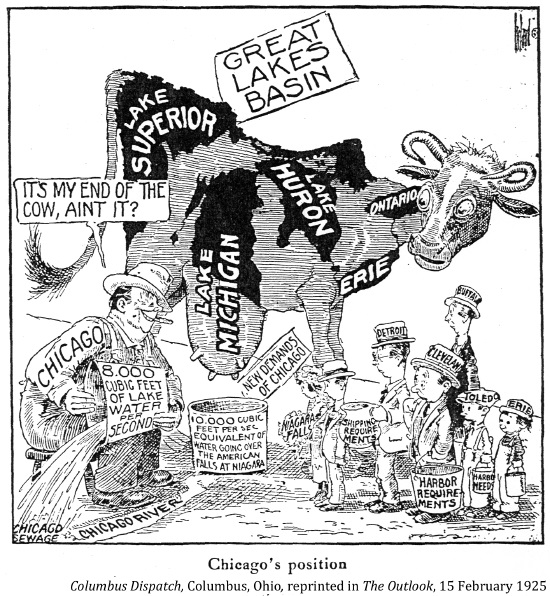
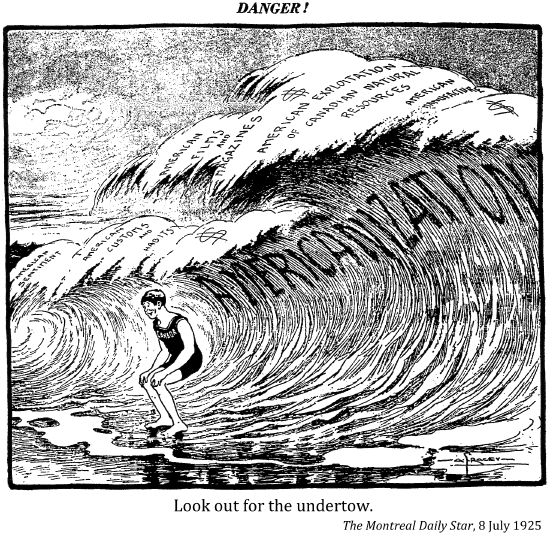
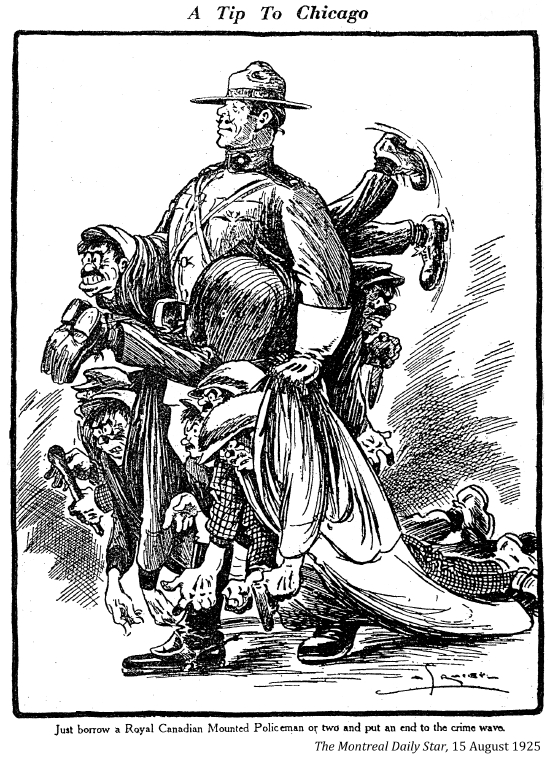
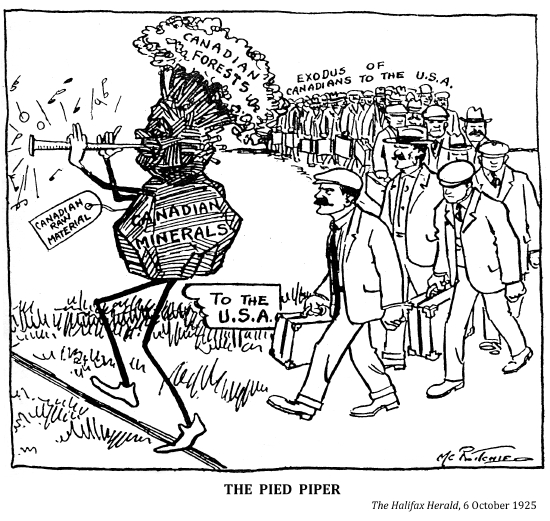
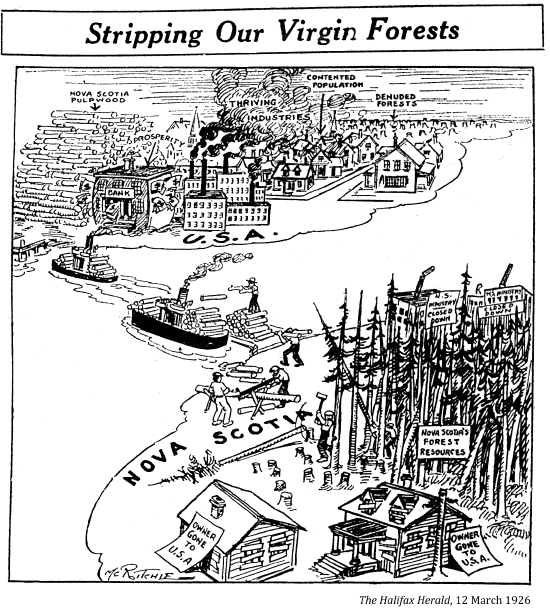
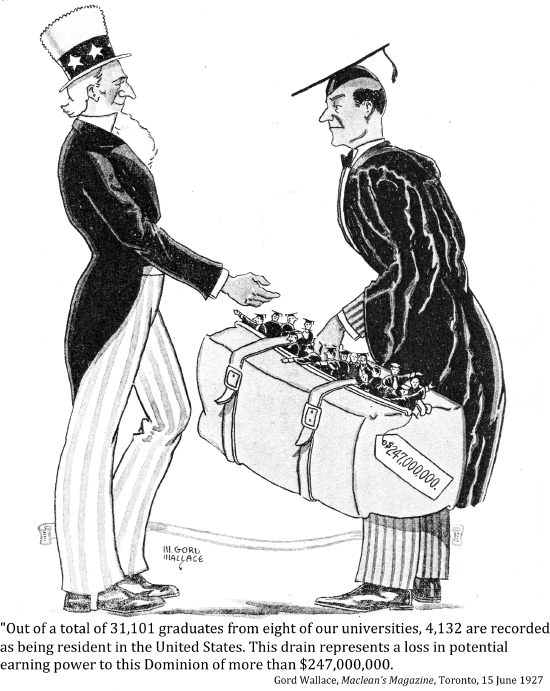
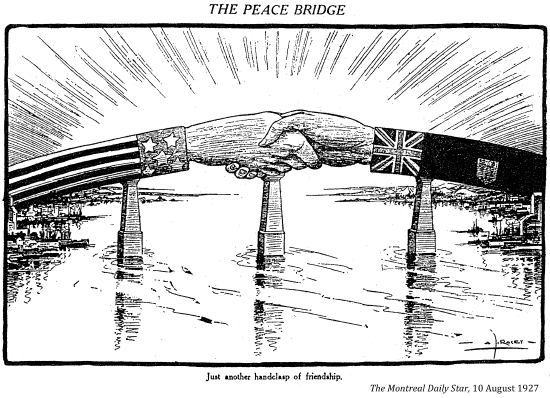
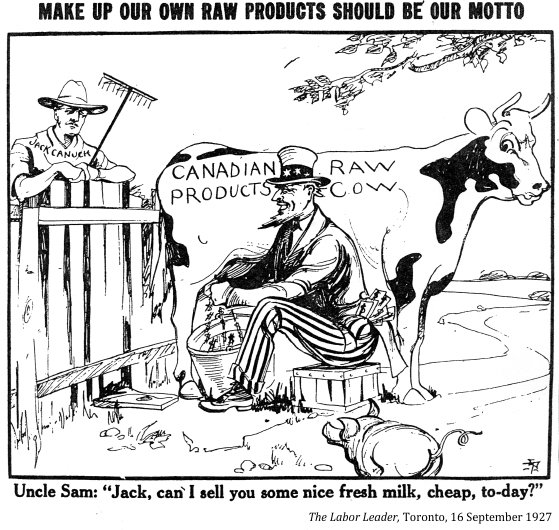
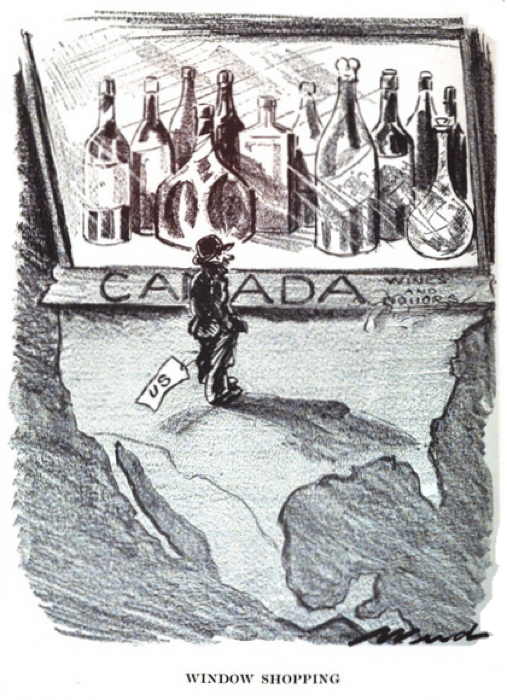
Judge, New York, 3 December 1928
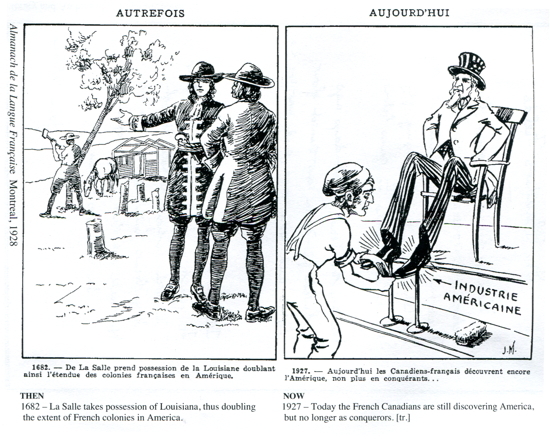
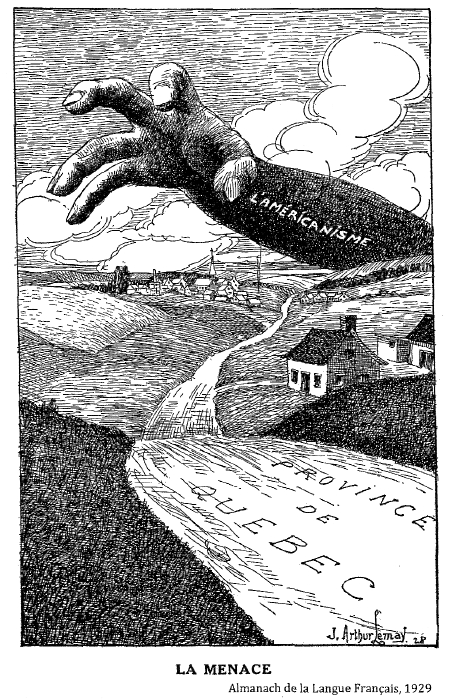

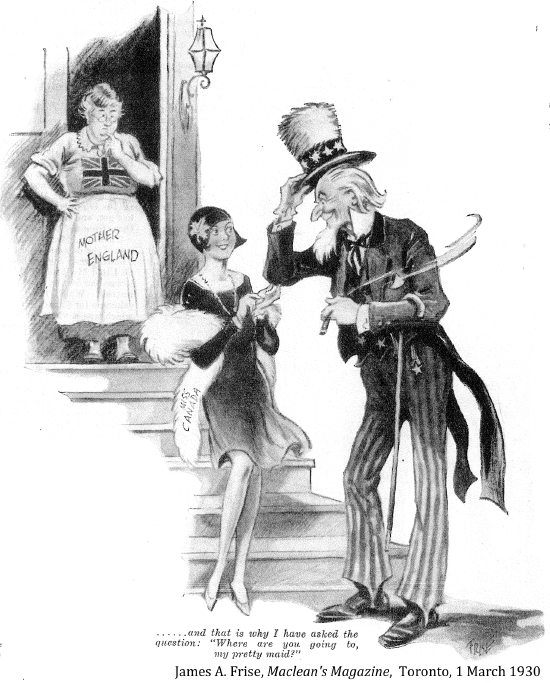
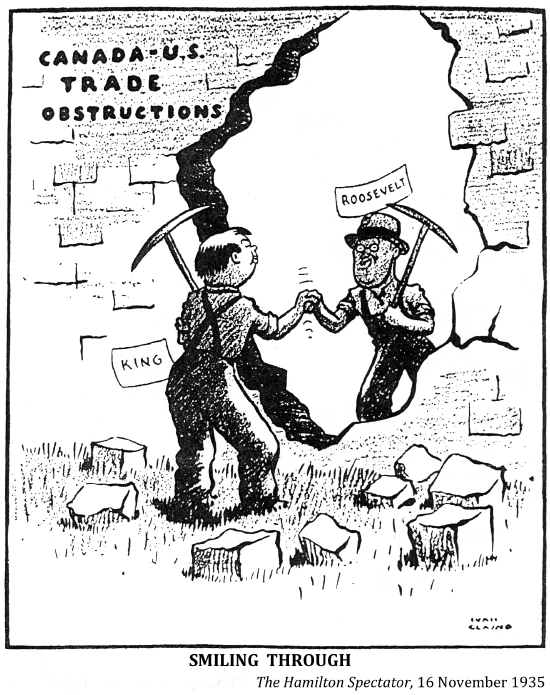
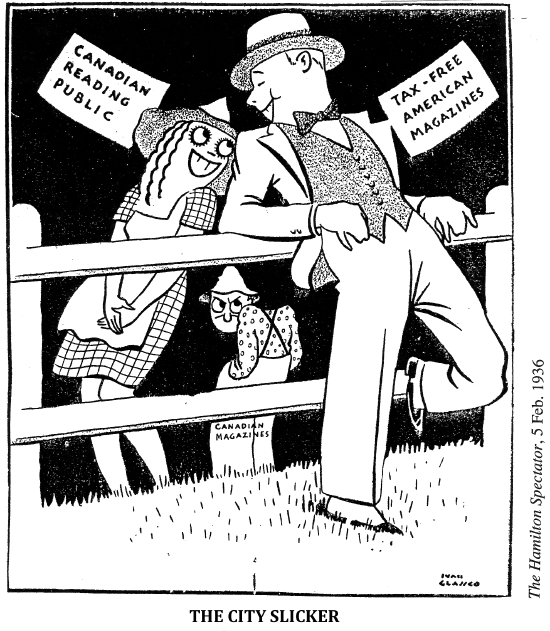
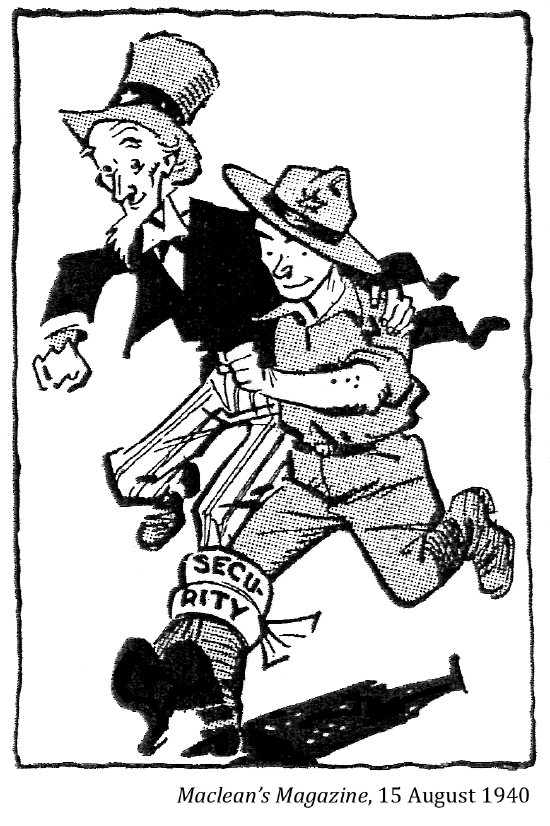
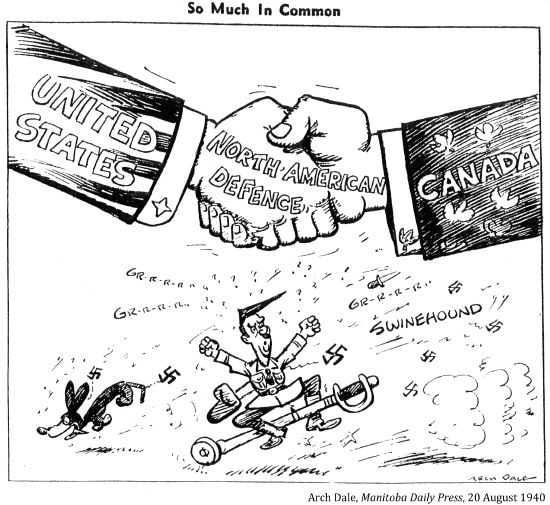
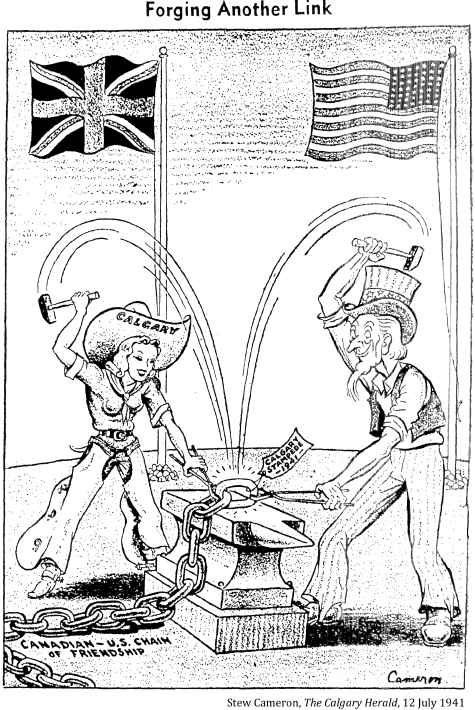
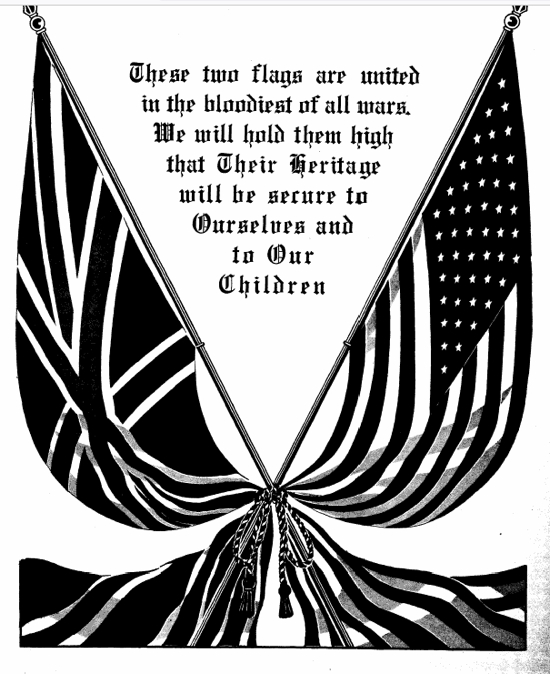
The Gateway, Edmonton, 19 December 1941
"Canada, which had done its best to shake off the grip of British imperialism in the first great war, was now finding itself caught in a similar grip of American imperialism in the second."
Pierre Berton, Marching Us to War
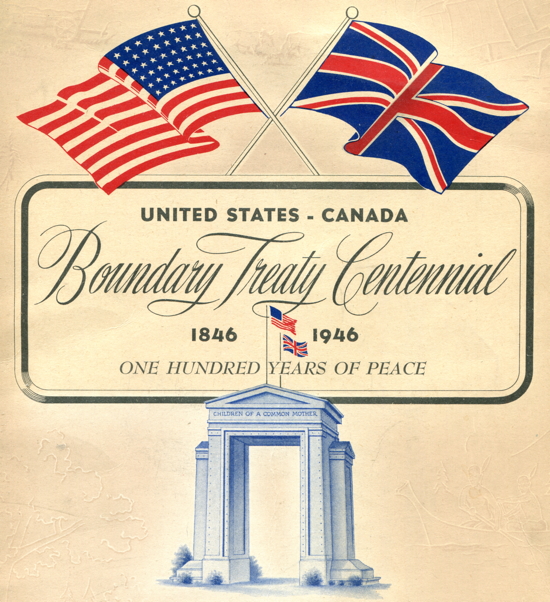
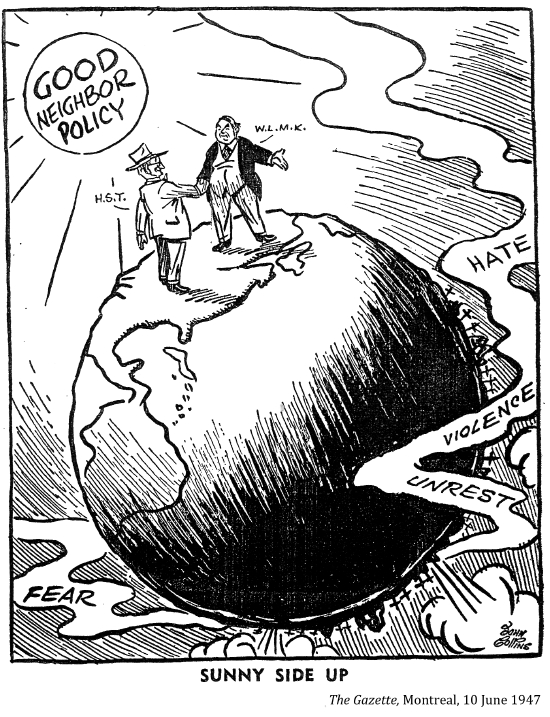
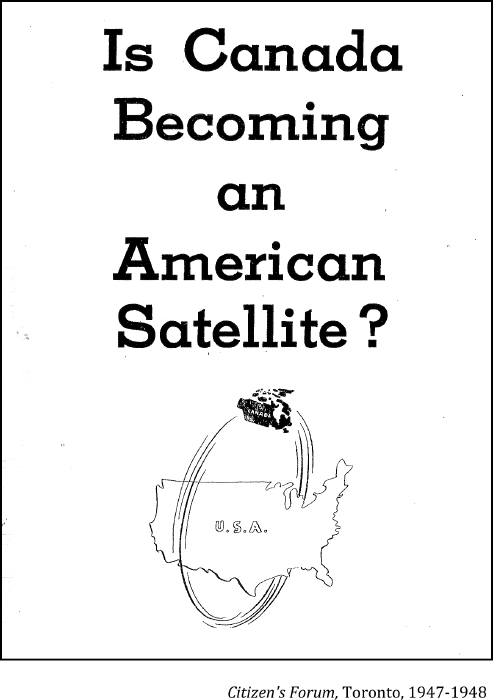
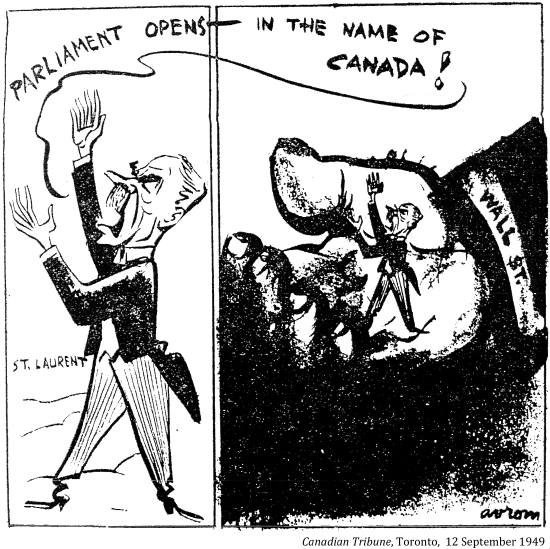
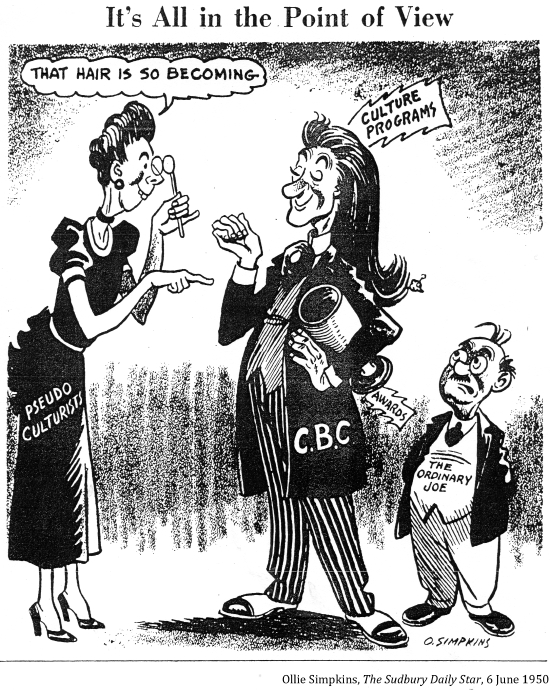
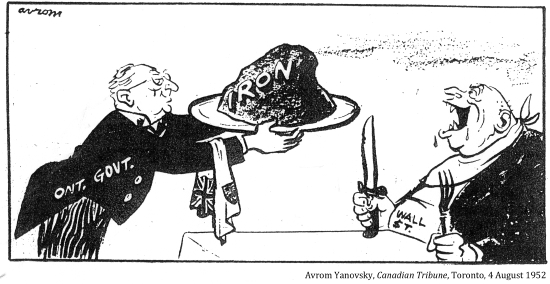

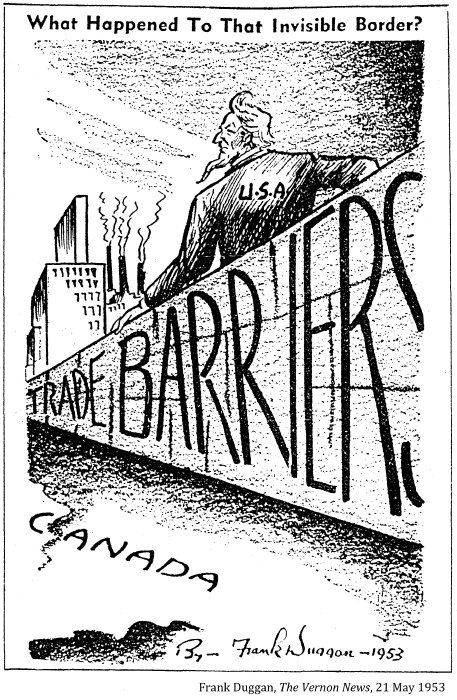
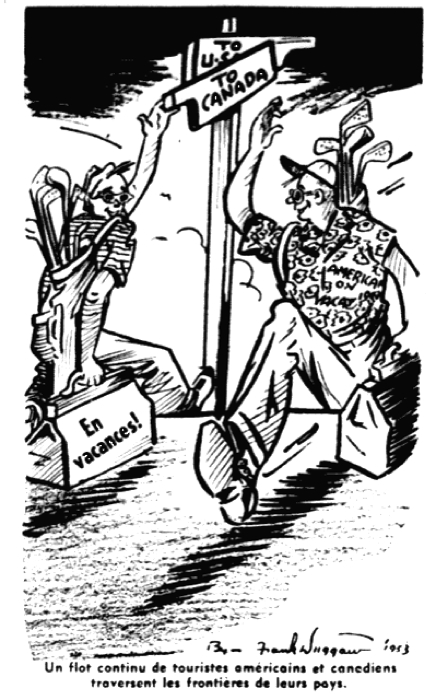
A steady stream of American and Canadian tourists cross the borders of their countries.
Duggan, La Liberté et le patriote, St. Boniface, 17 July 1953
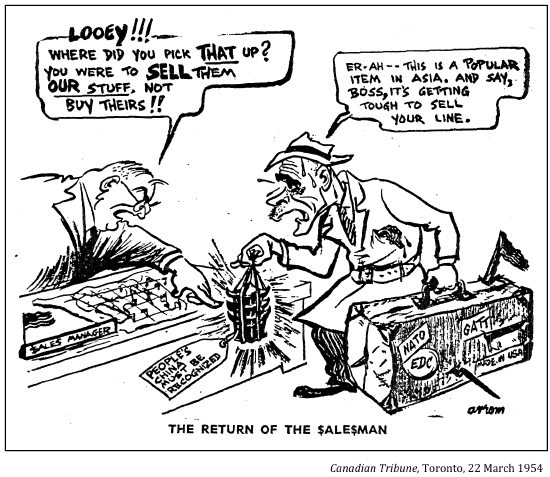
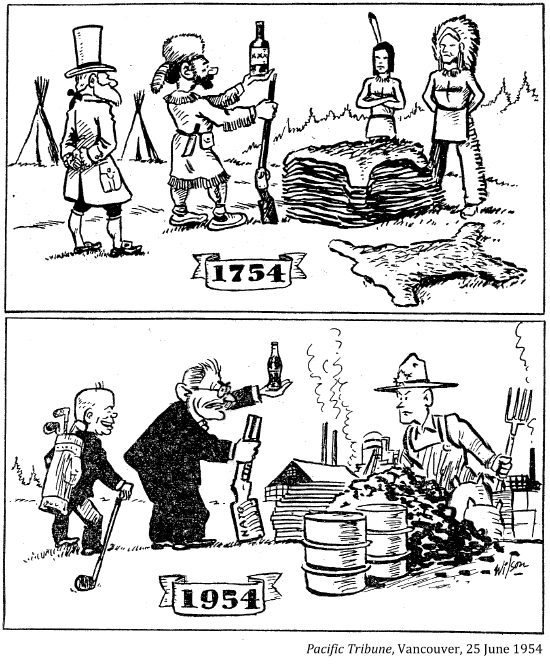
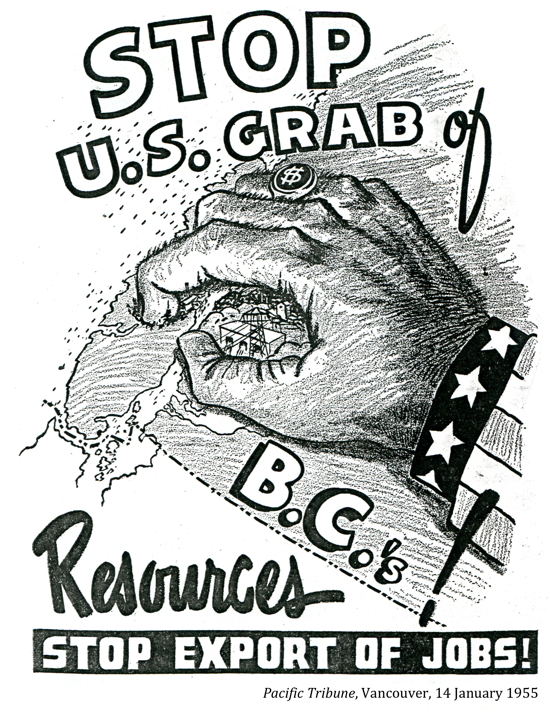
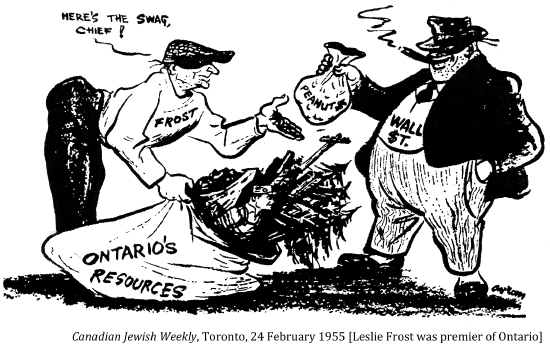
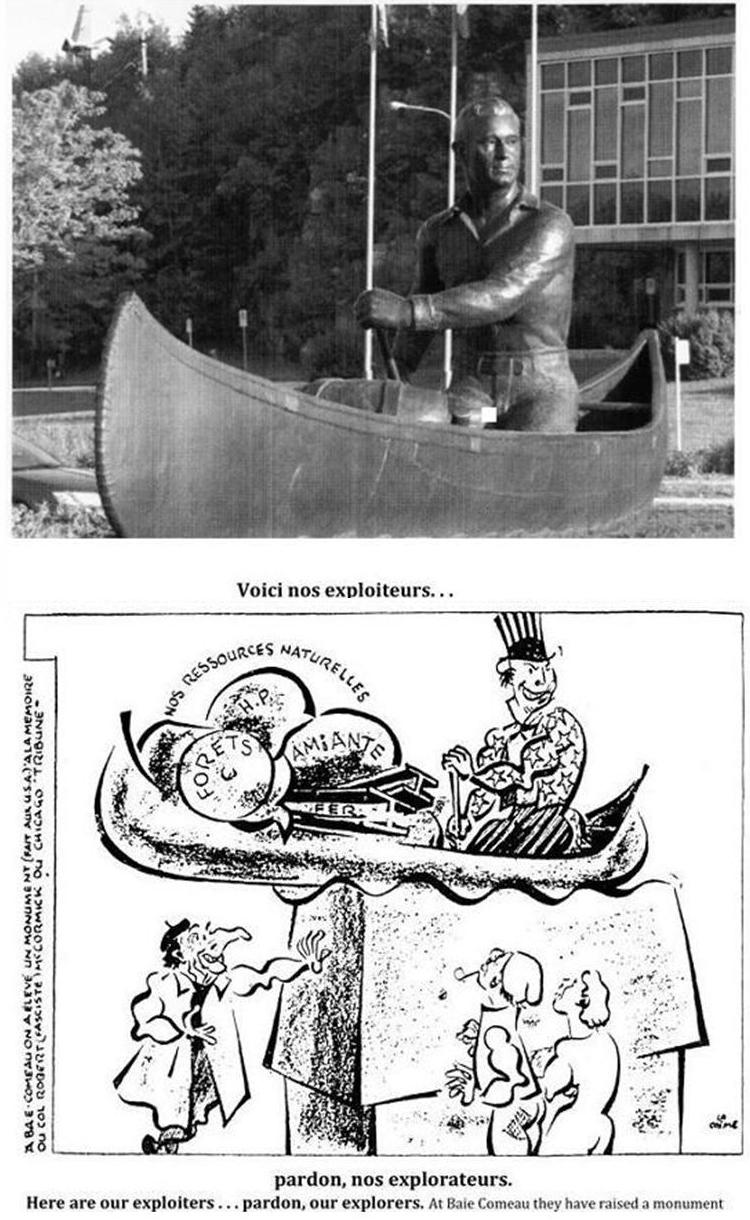
In 1936 American entrepreneur Robert McCormick built a pulp and paper mill in Baie Comeau, Quebec. He came up with the idea while canoeing in the area in 1915. This statue, by an American sculptor, was erected in Baie Comeau after his death in 1955. How is Robert McCormick viewed in the statue as opposed to the cartoon?

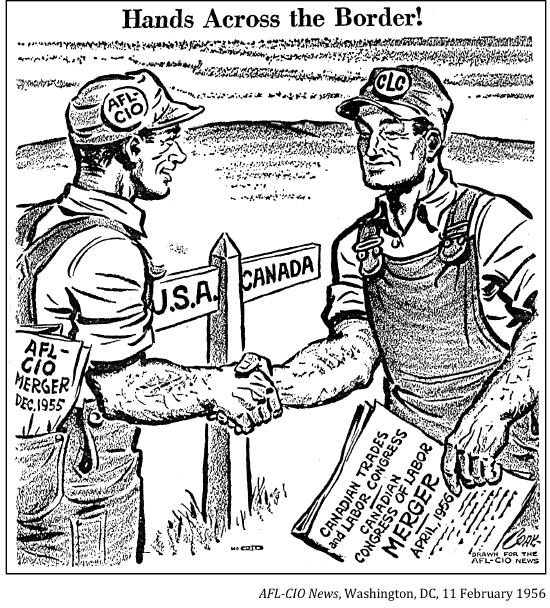
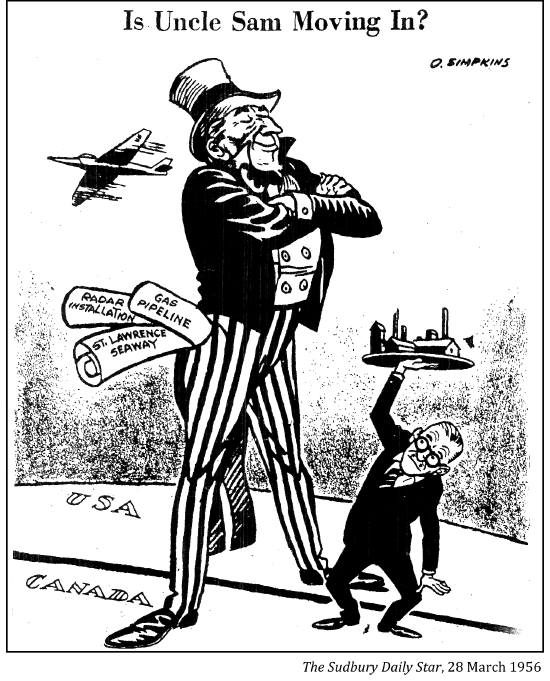
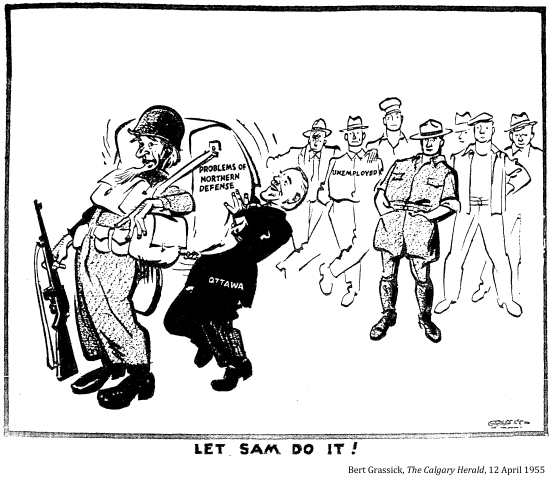
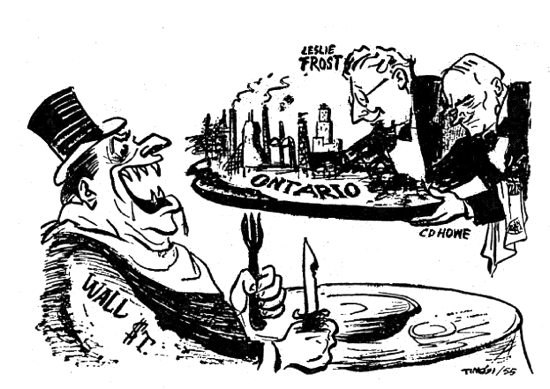
Canadian Hungarian Worker, Toronto, 26 May 1955
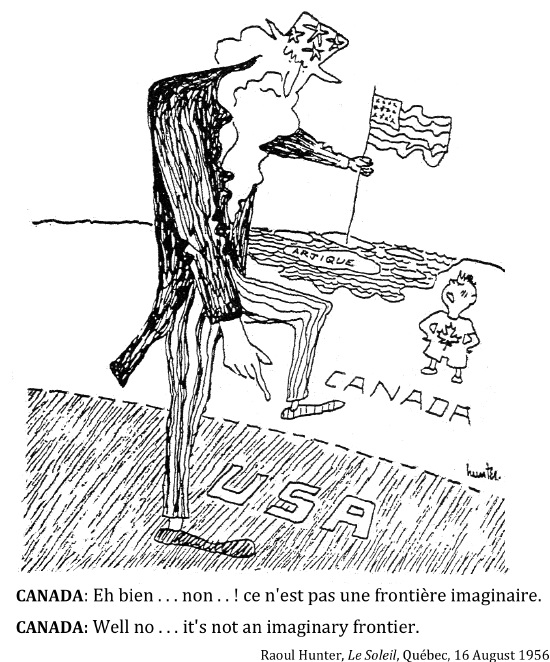
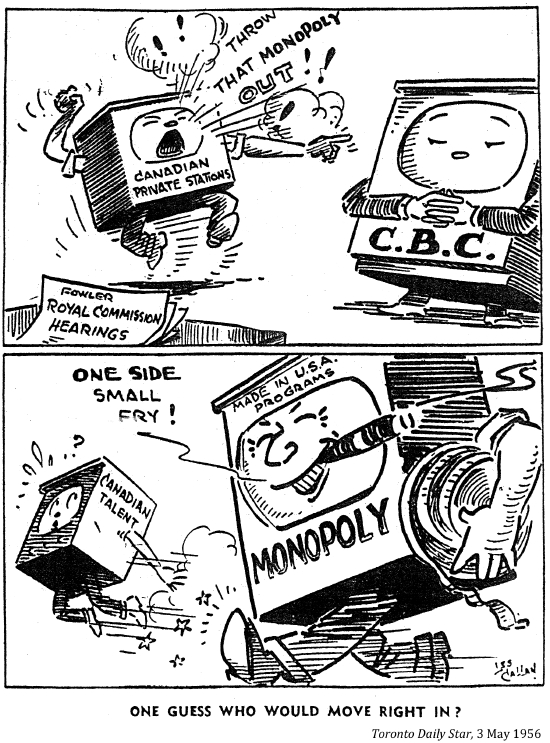
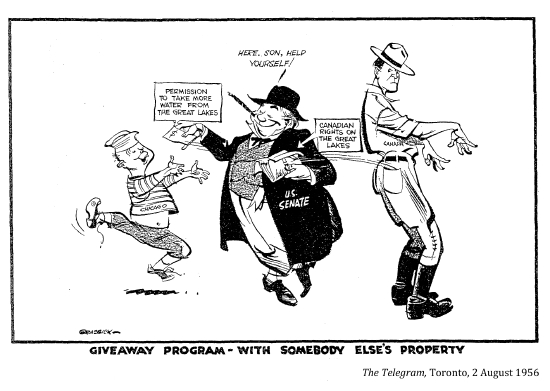
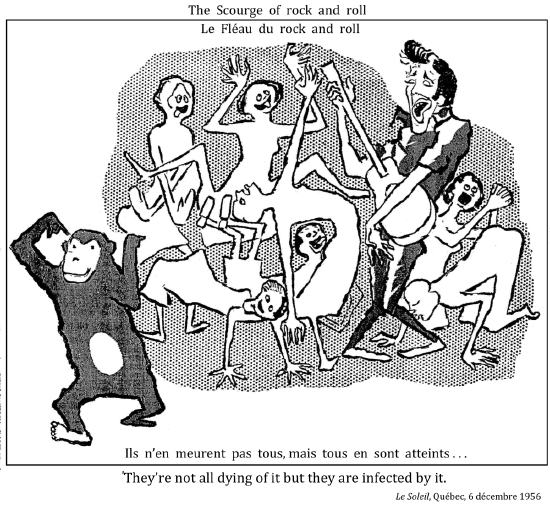
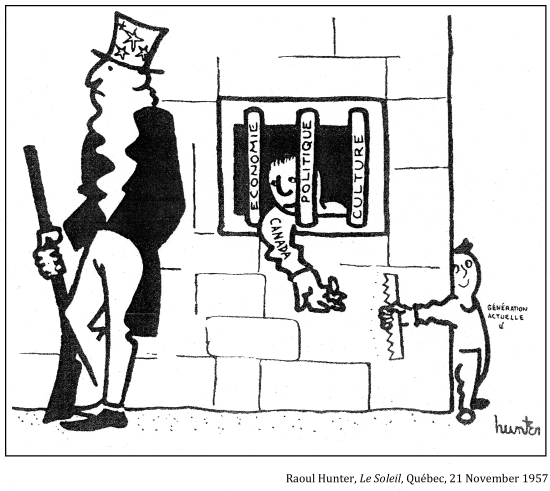
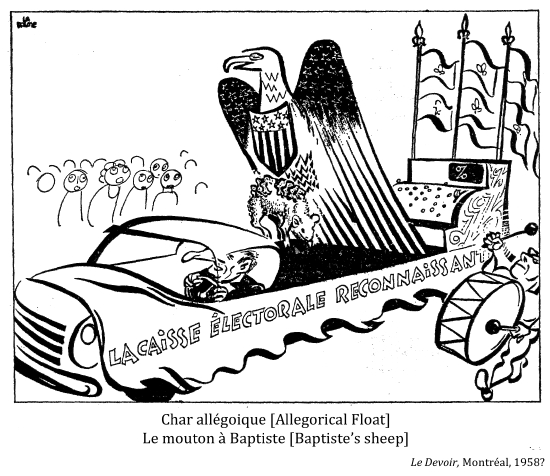
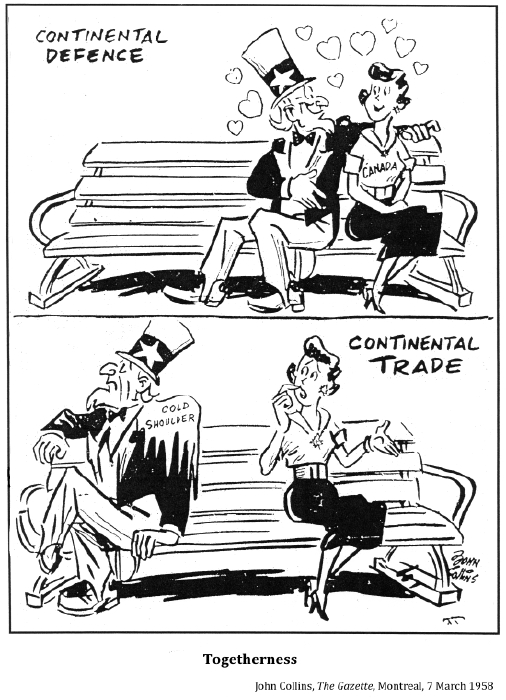
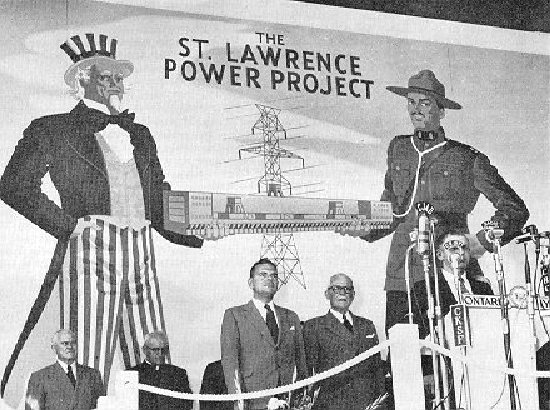
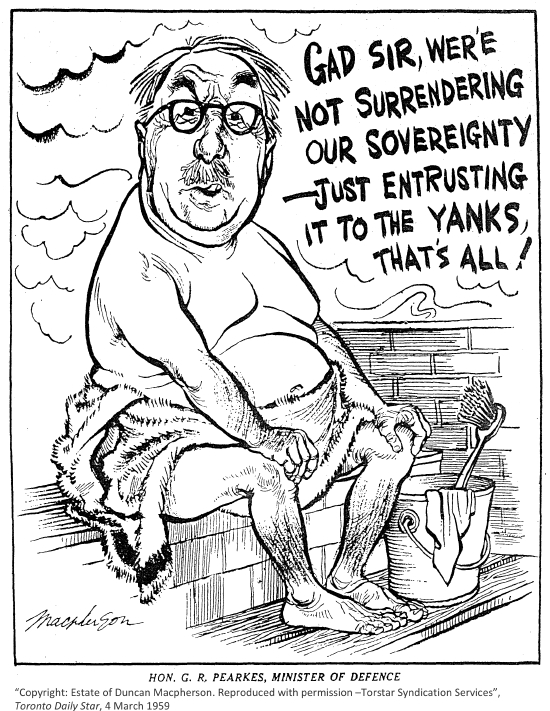
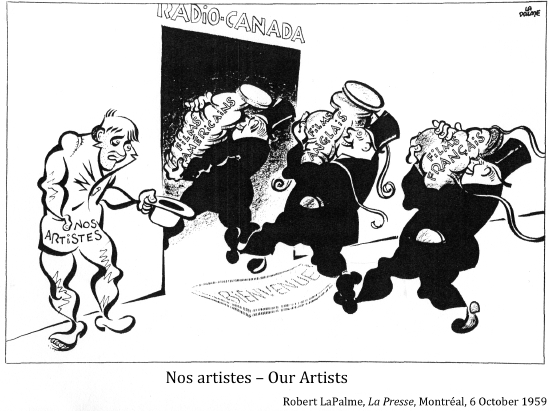
"The American invasion by film, radio and periodical is formidable. Much of what comes to us is good. . . It has, however, been represented to us that many of the radio programmes of the 'crime' and 'horror' type, are positively harmful. News commentaries too, and even live broadcasts from American sources, are designed for American ears and are almost certain to have an American slant and emphasis by reason of what they include or omit, as well as because of the opinions expressed."
Royal Commission on Arts, Letters and Sciences, 1951
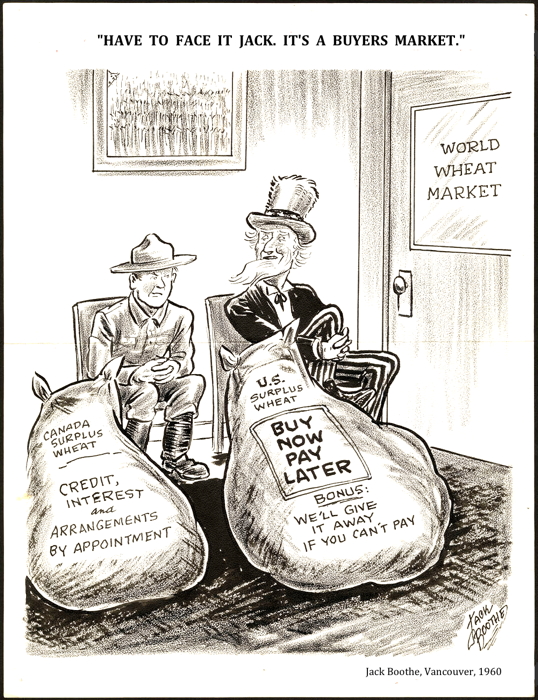
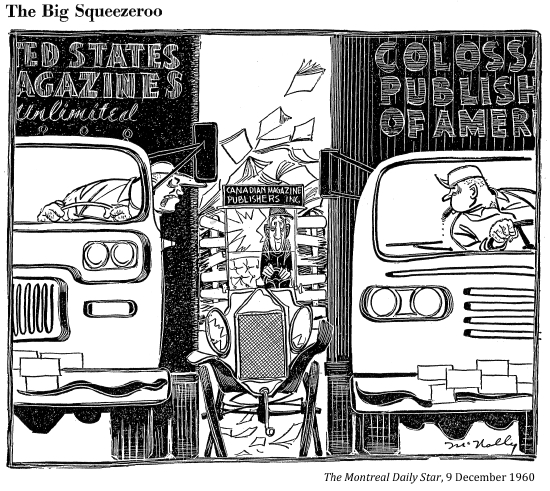
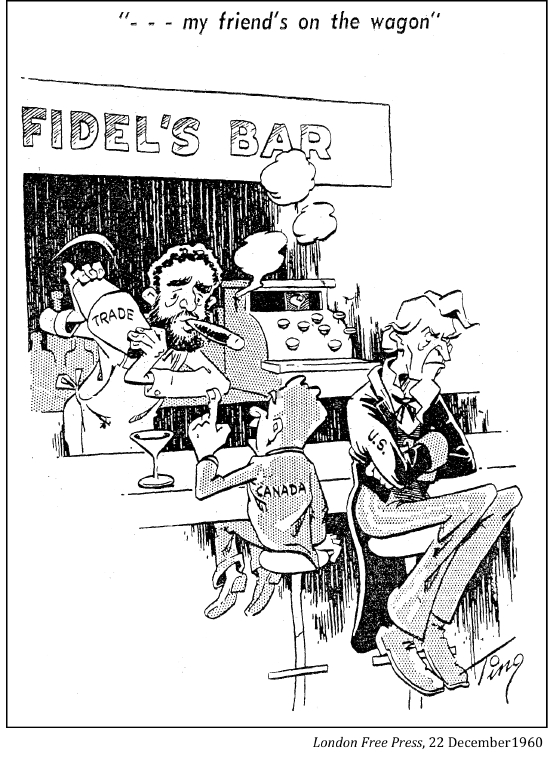
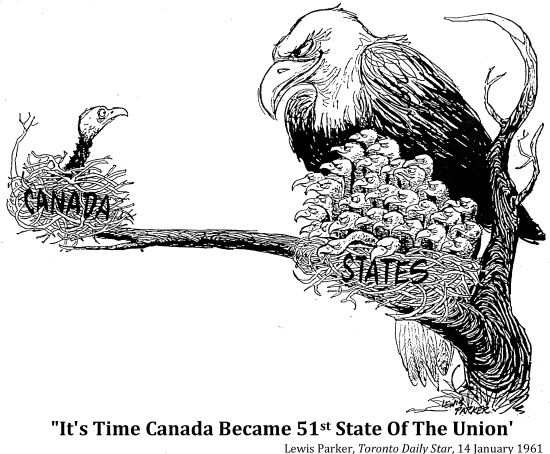
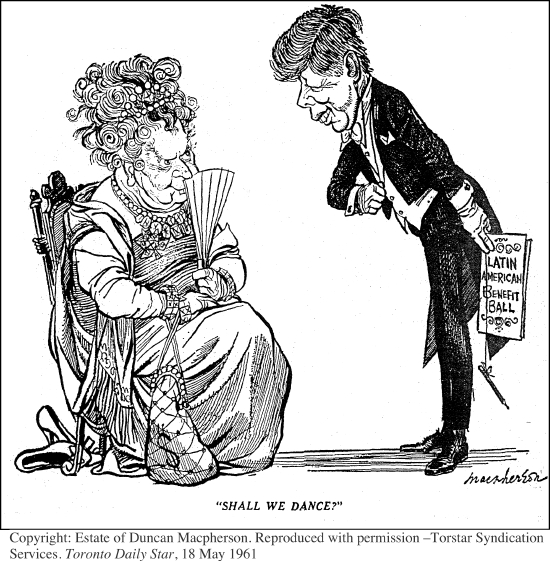
"Geography has made us neighbours. History has made us friends. Economics has made us partners. And necessity has made us allies. Those whom nature hath so joined together, let no man put asunder. What unites us is far greater than what divides us."
John F. Kennedy, House of Commons, 17 May 1961
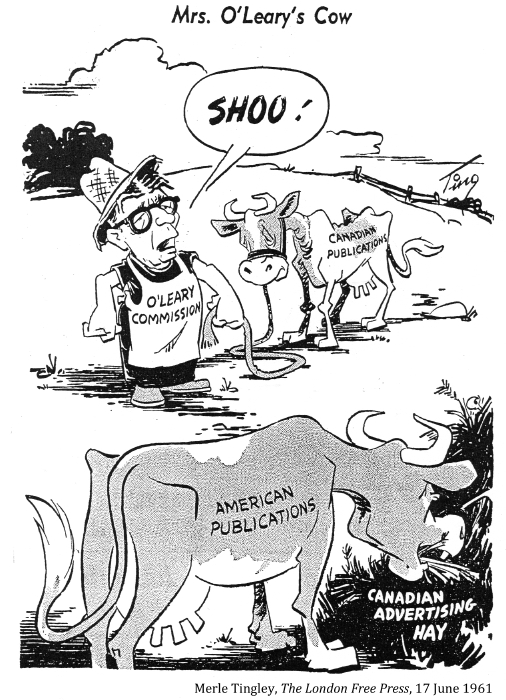
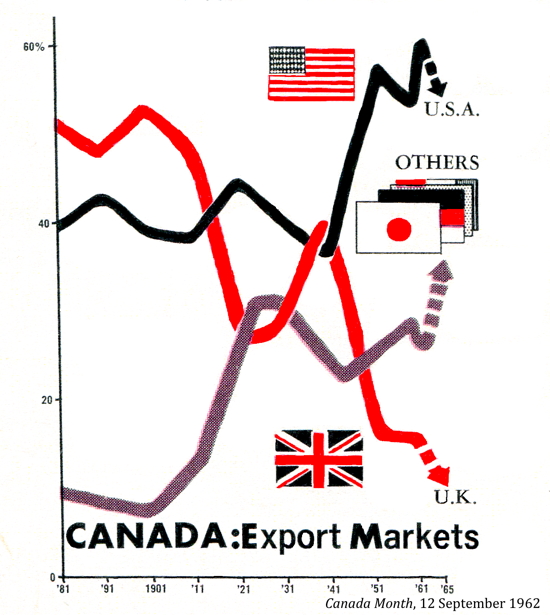
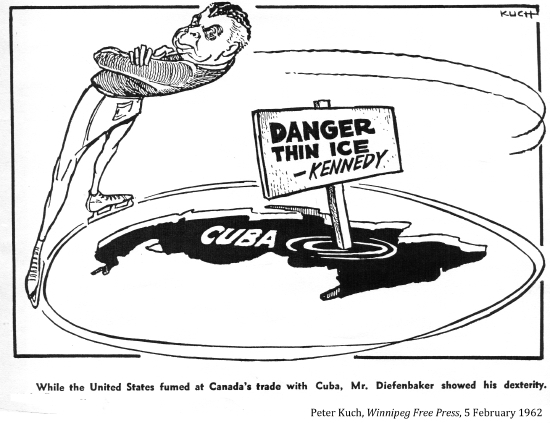
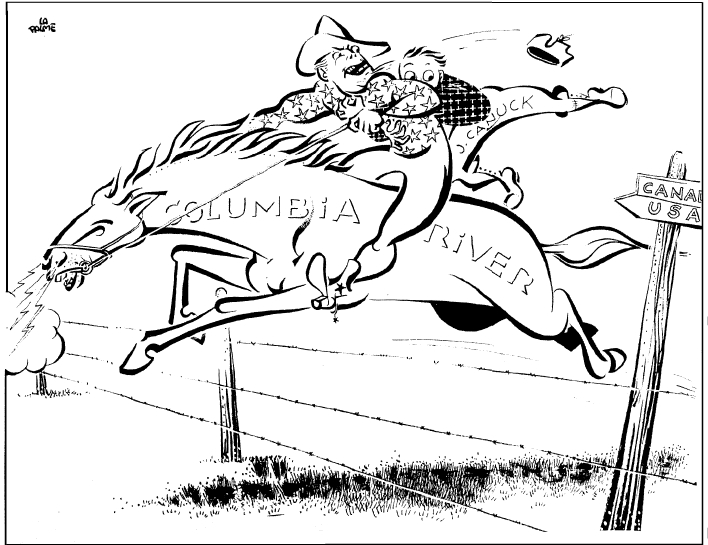
Robert LaPalme, The Financial Times of Canada, 30 December 1963
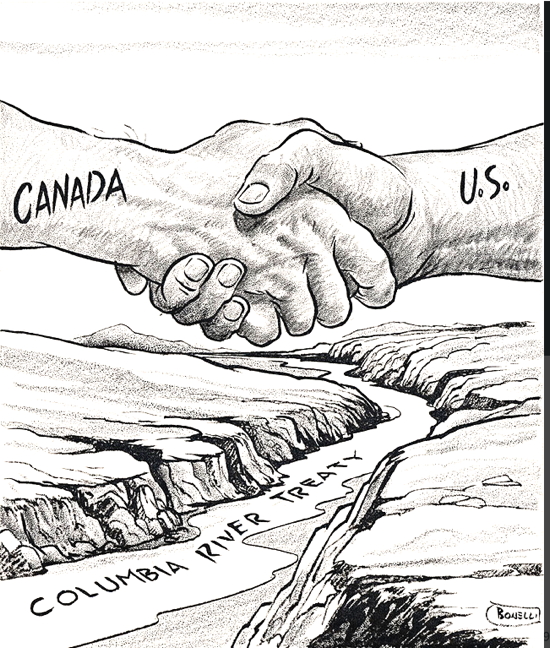
Carl Bonelli, Oregon Journal, Portland, Oregon, 23 January 1964
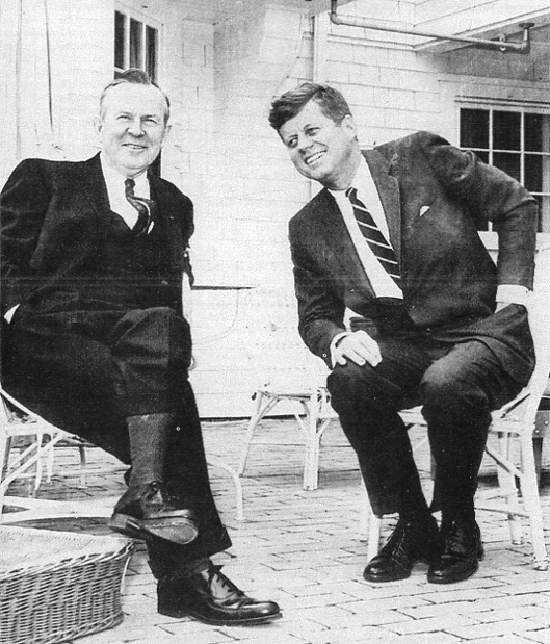
Prime Minister Lester B. Pearson and President John F. Kennedy, August 1964
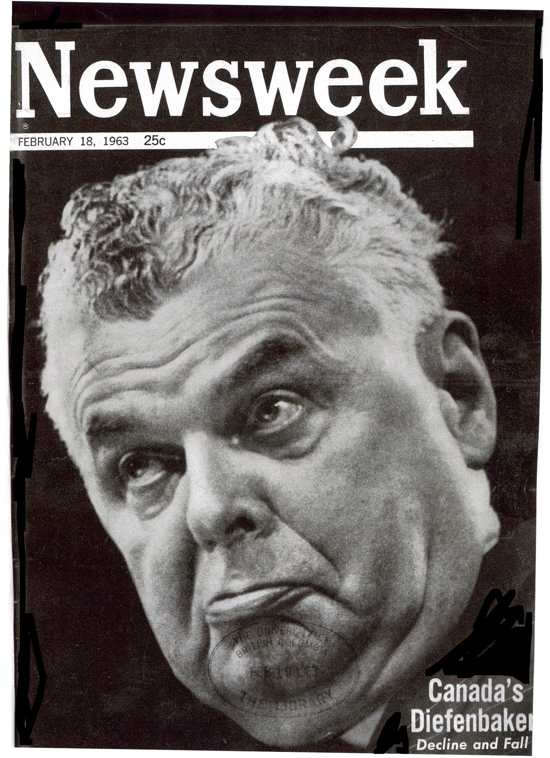
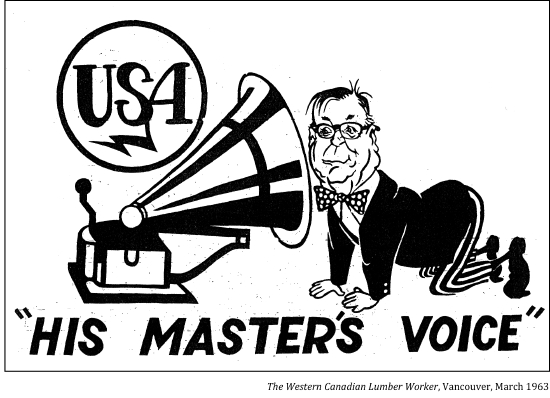
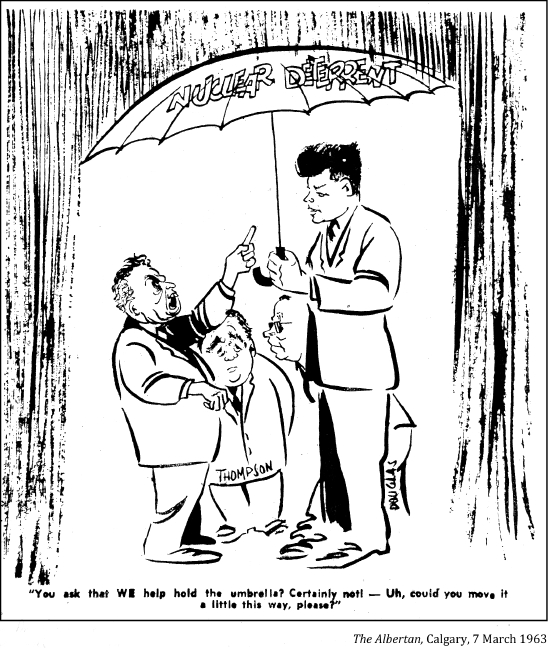
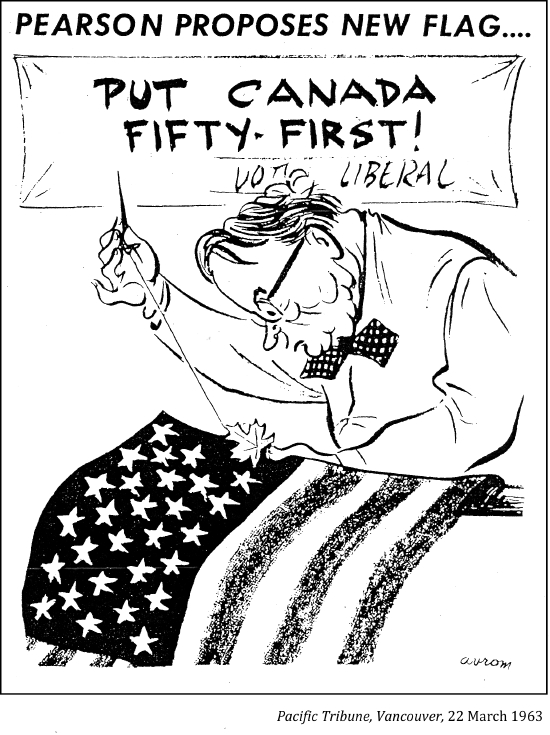
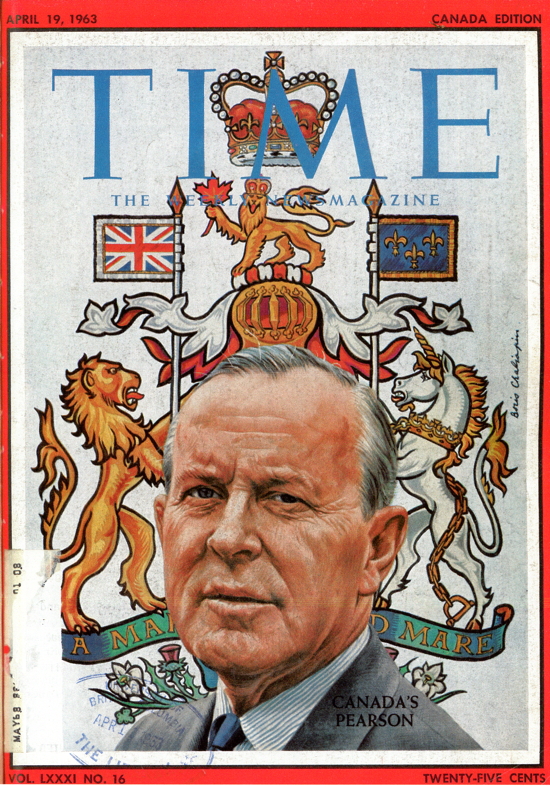
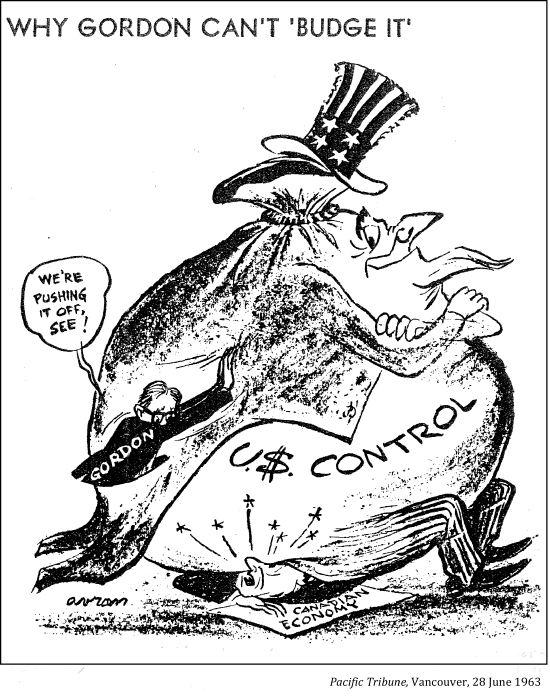
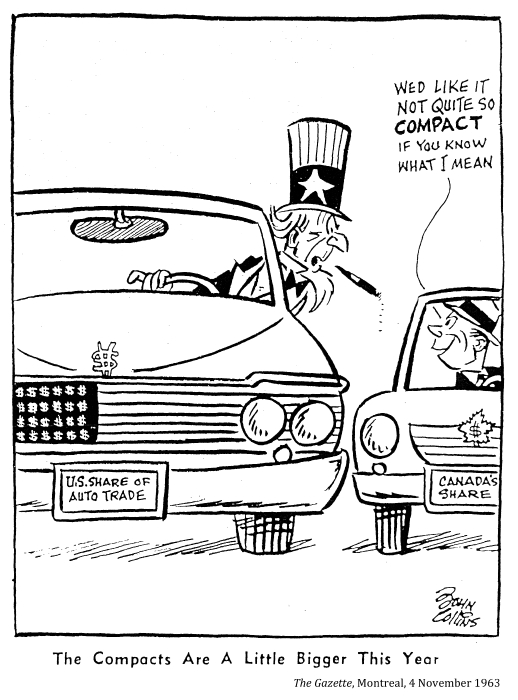
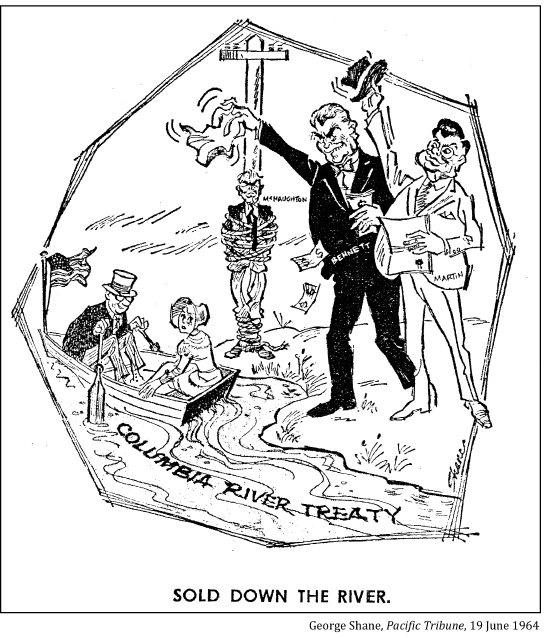
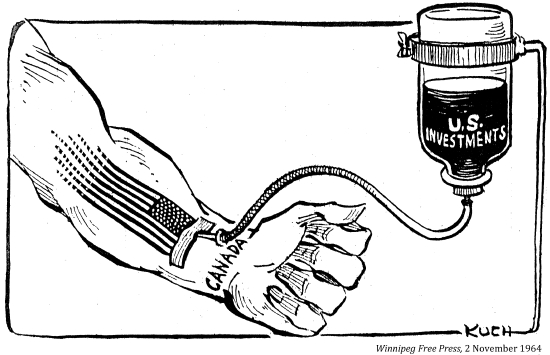
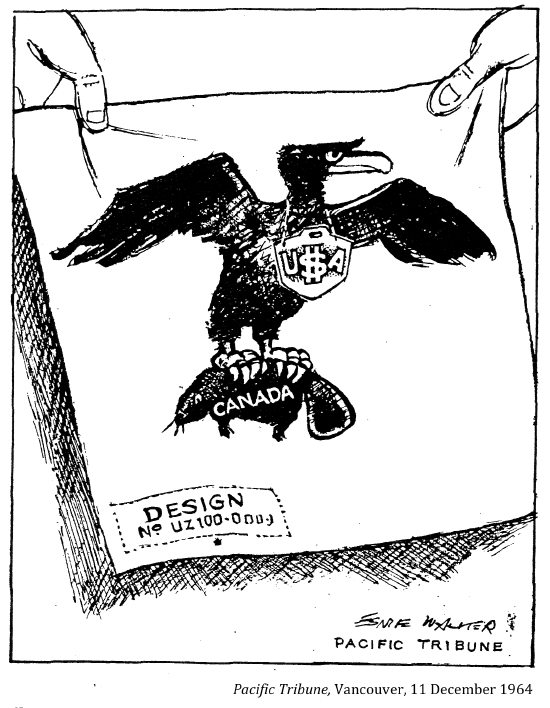
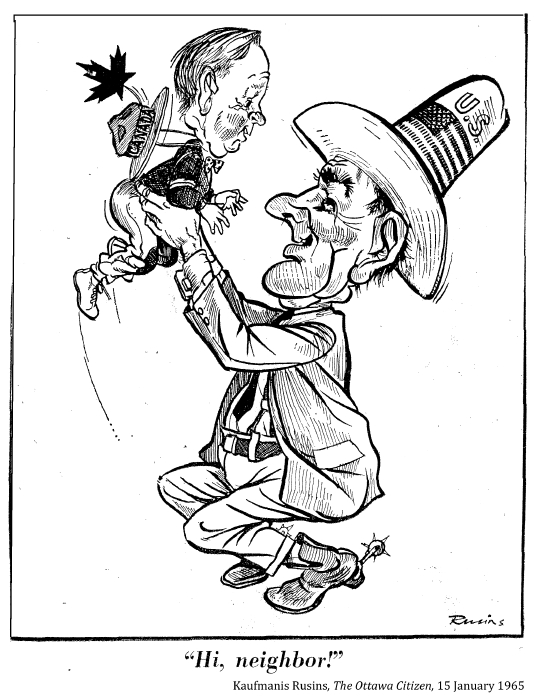
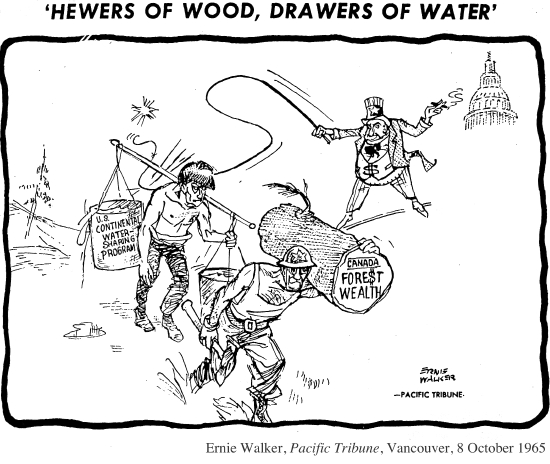
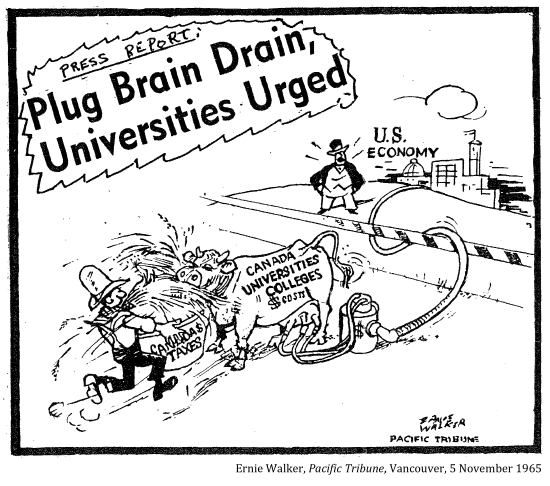
"Canadians ask themselves whether they have become free of Britain's colonial influence only to fall under the spell of the United States' economic imperialism."
Walter Gordon, A Choice for Canada, 1966
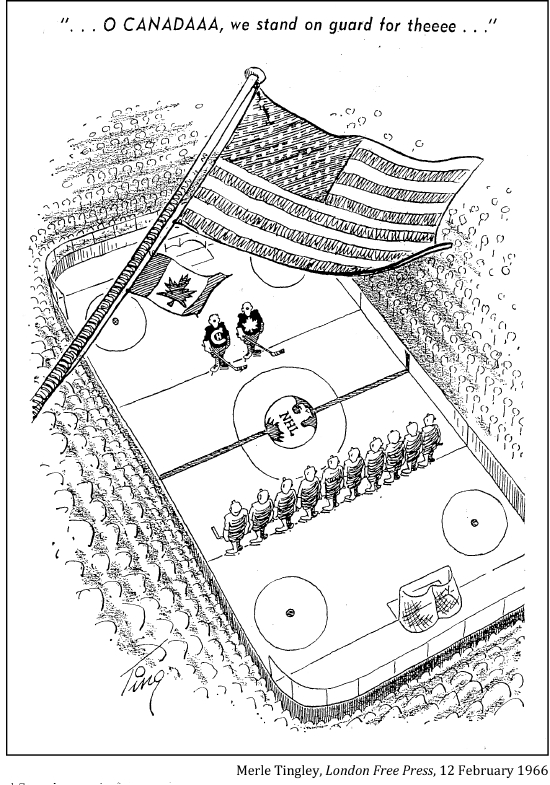
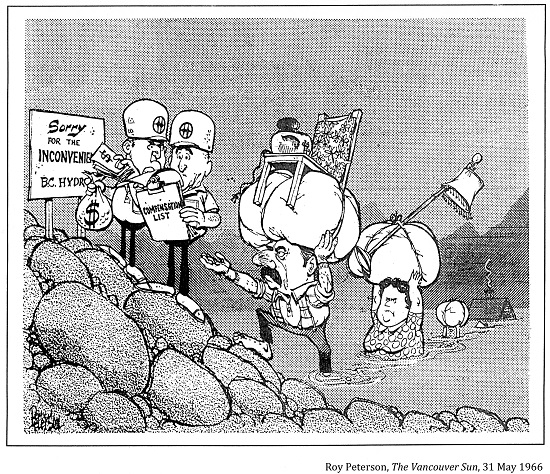
[Columbia River Treaty]
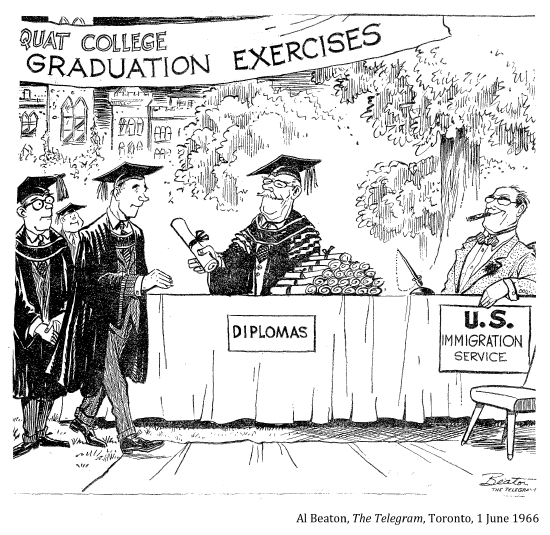
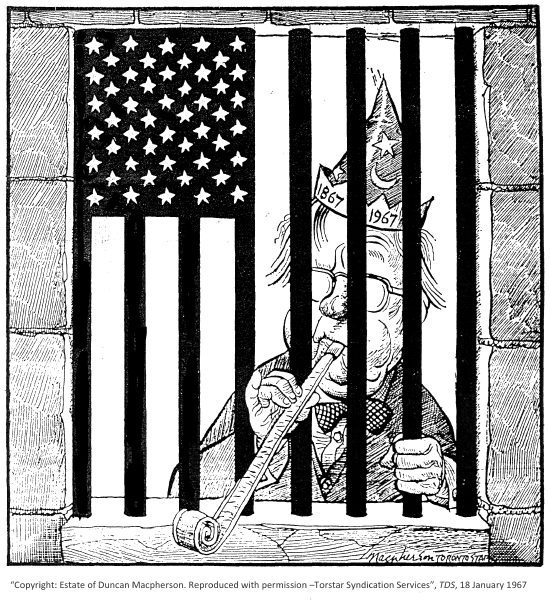
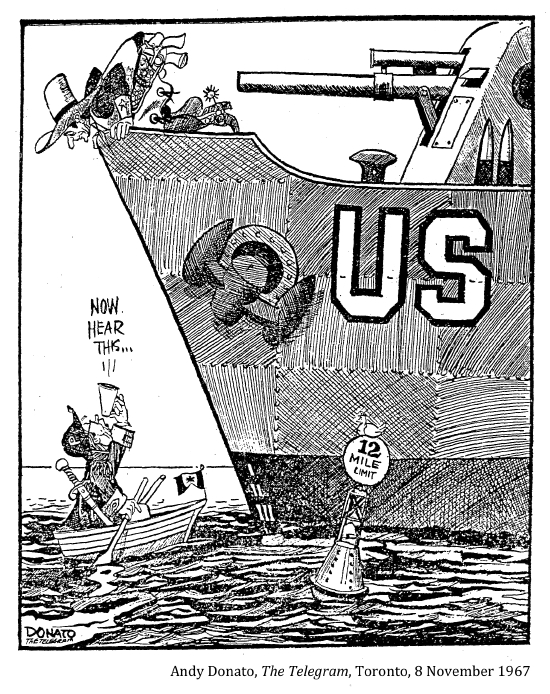
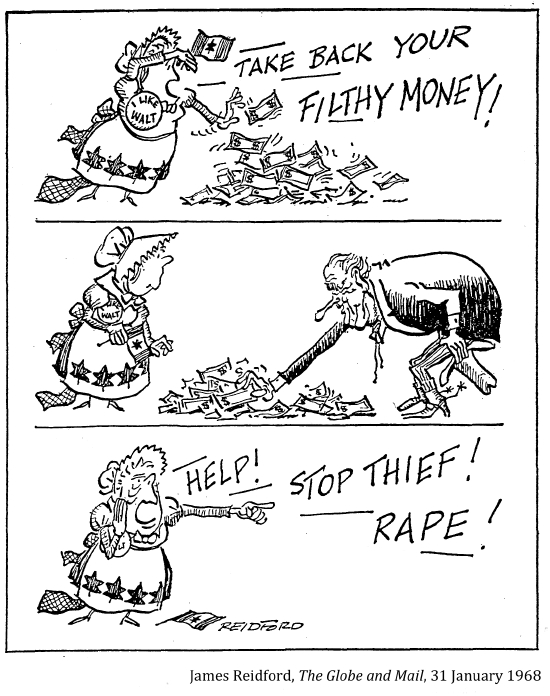
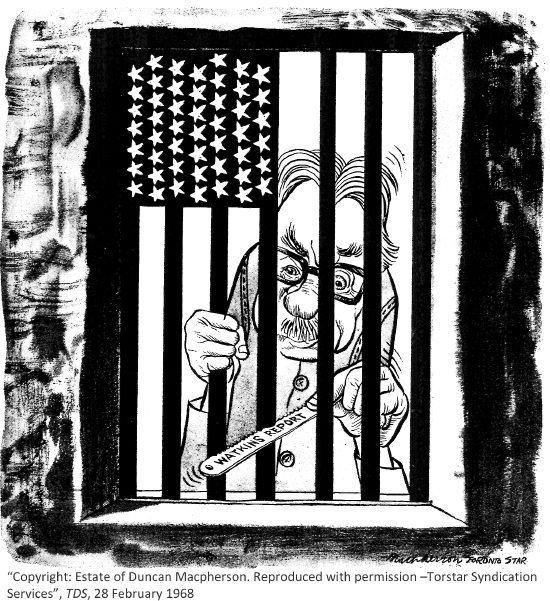
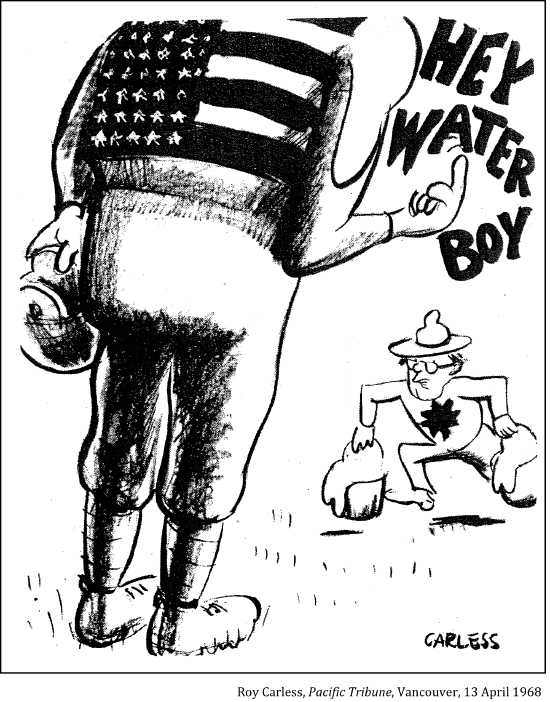
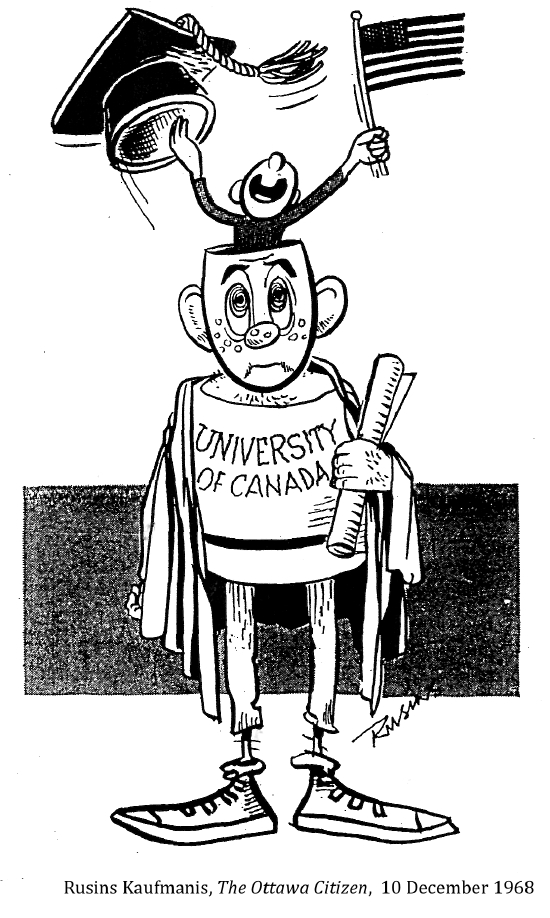
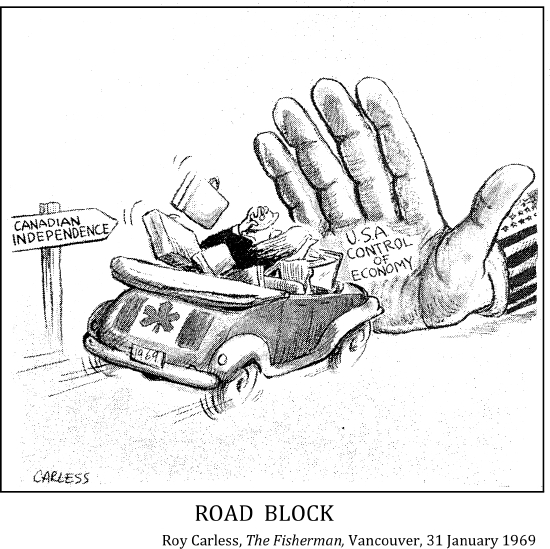
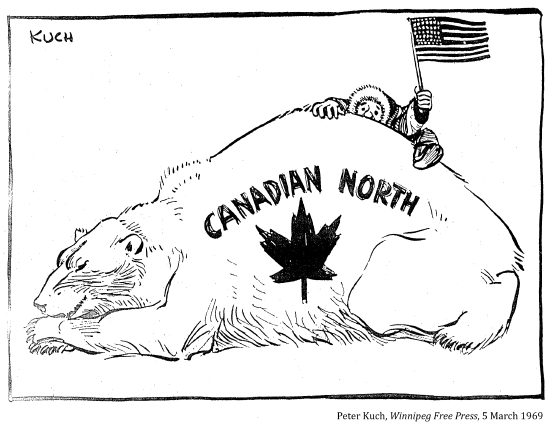
"Living next to you is in some ways like sleeping with an elephant; no matter how friendly and even-tempered is the beast, if I may call it that, one is affected by every twitch and grunt. Even a friendly nuzzling can sometimes lead to frightening consequences."
Pierre Elliot Trudeau, 25 March 1969
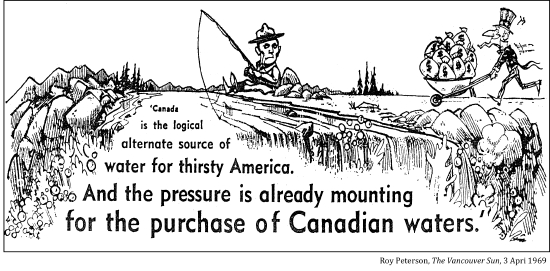
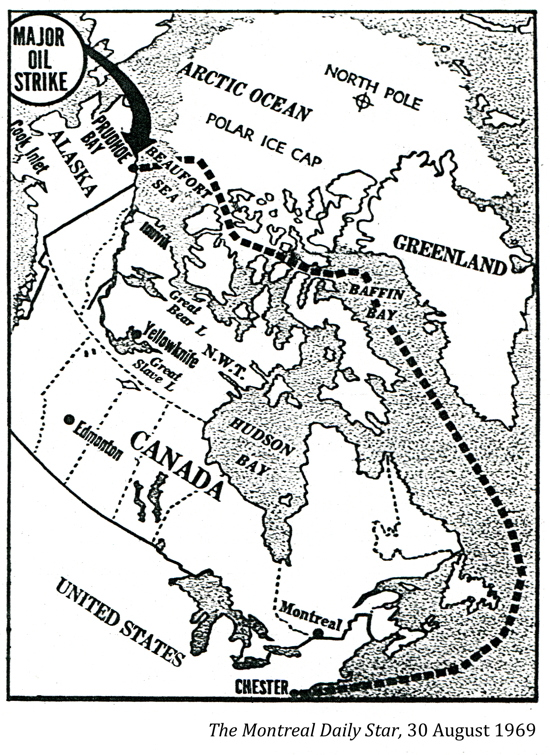
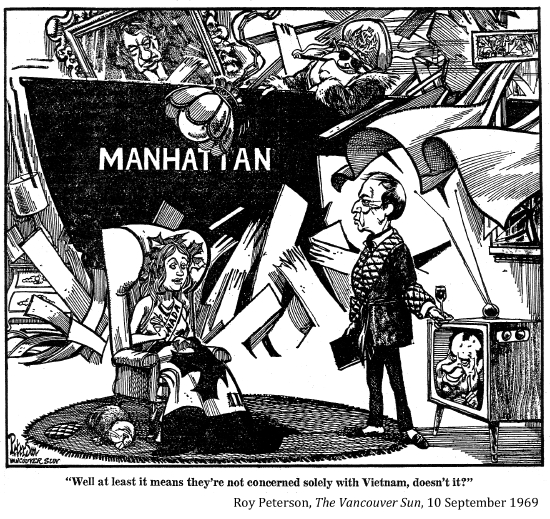
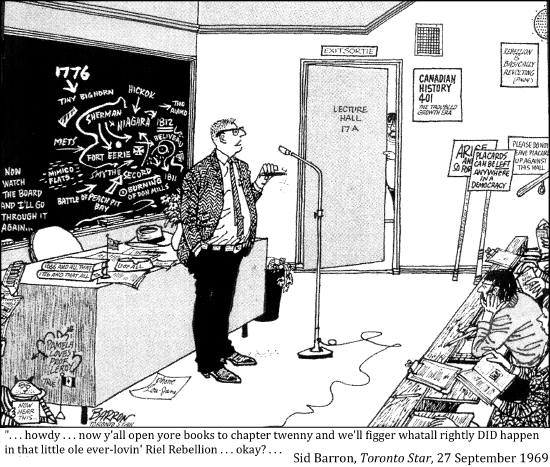
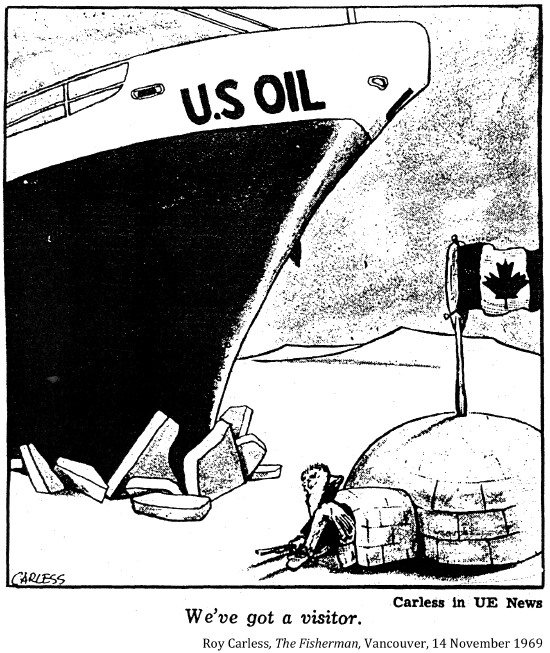
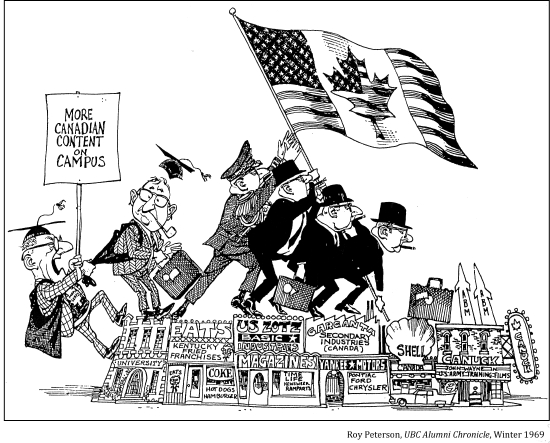
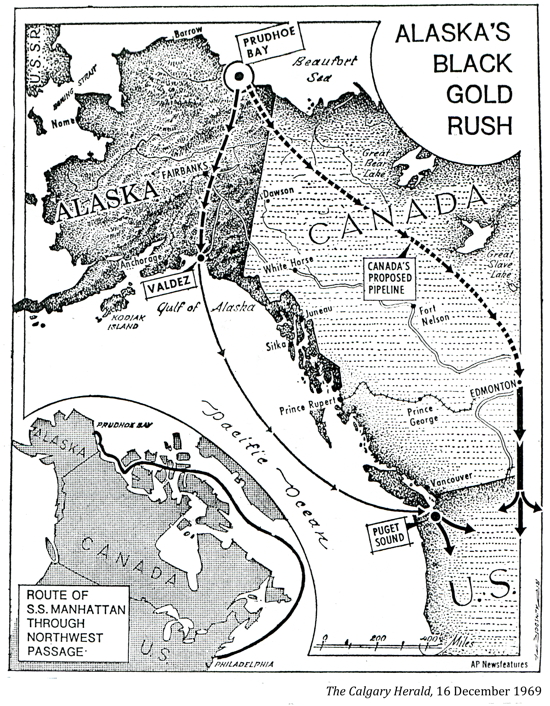
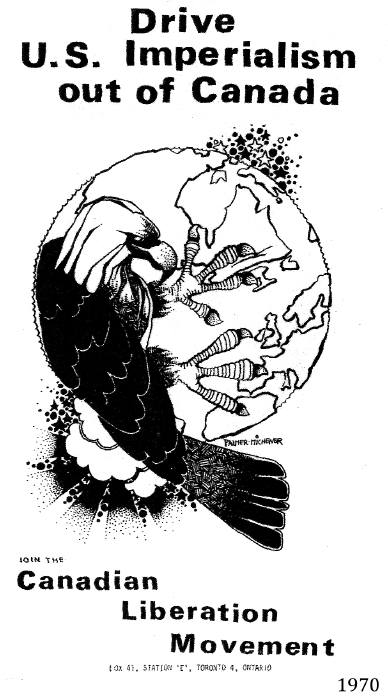
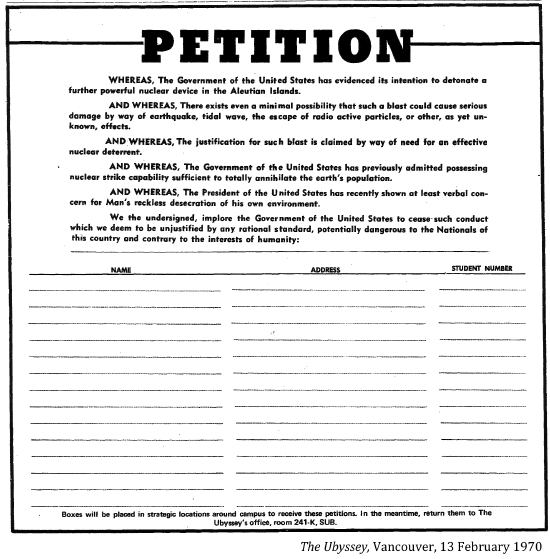
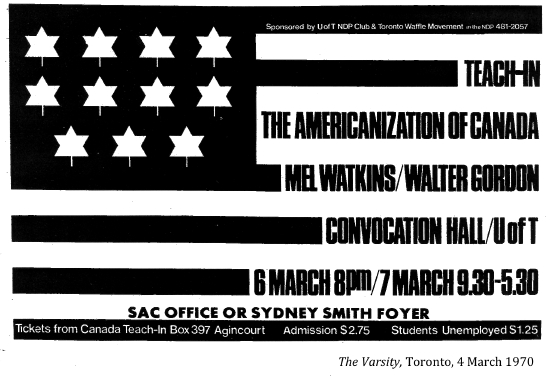
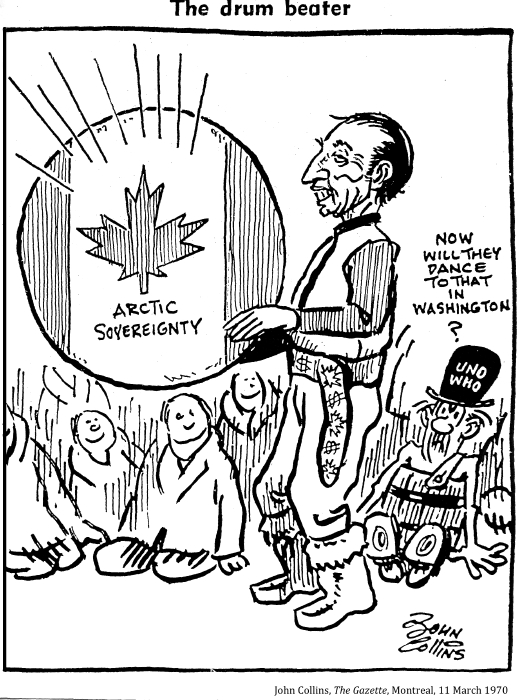
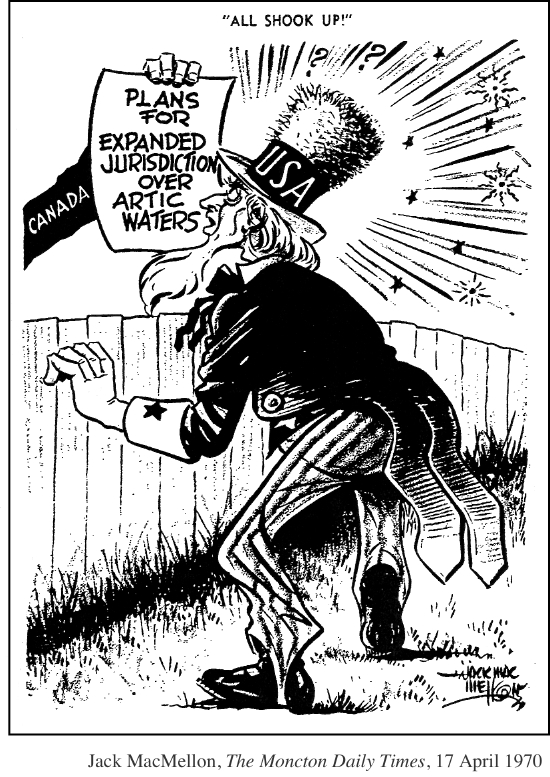
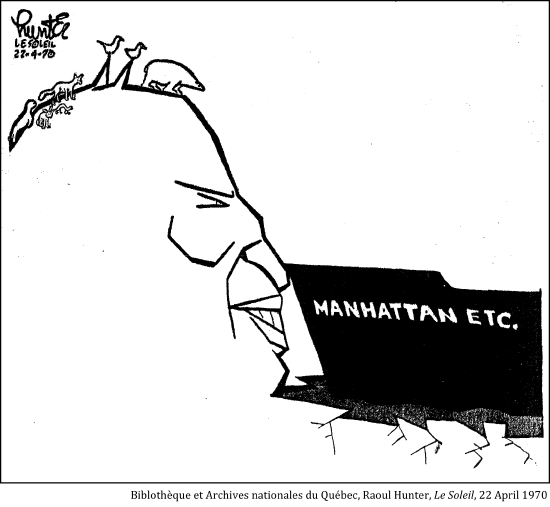

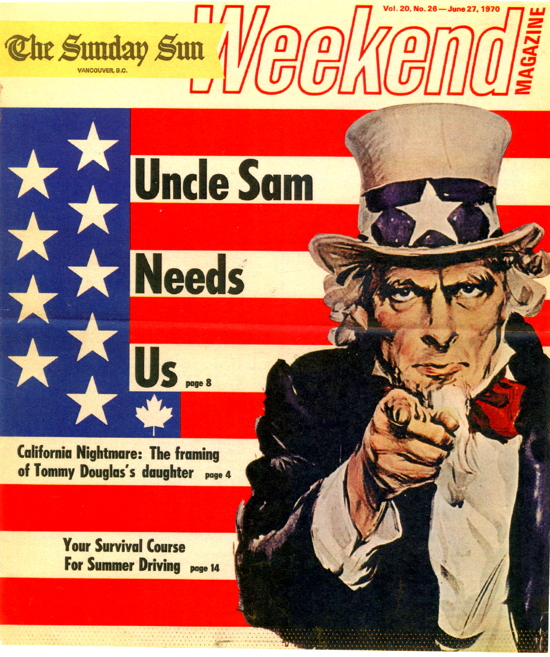

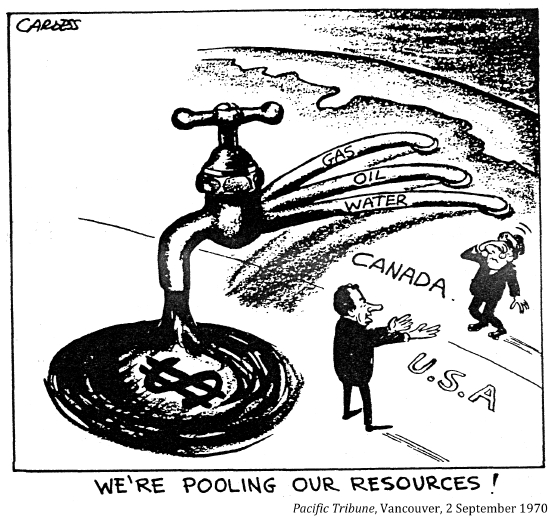
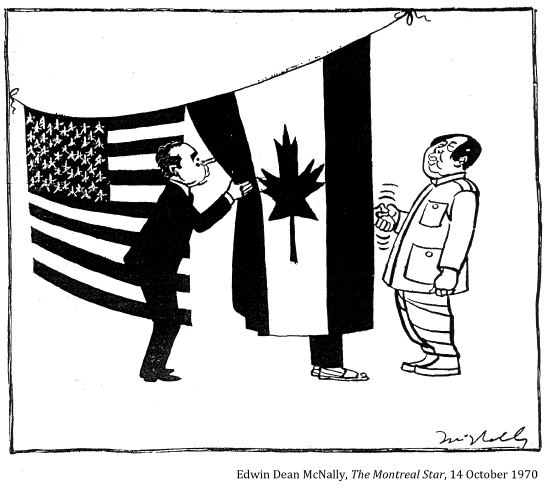
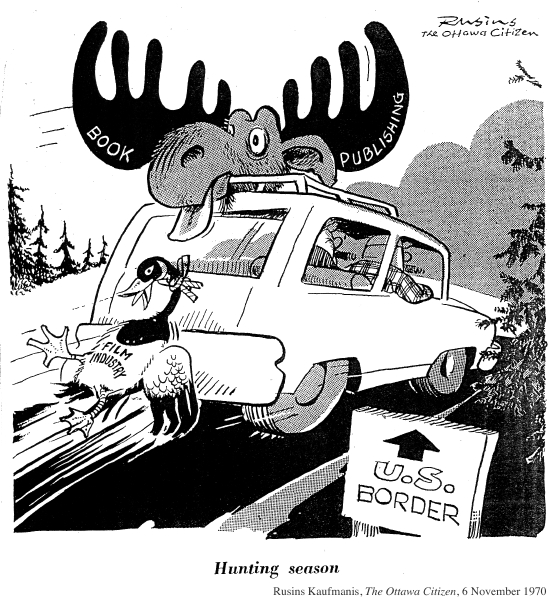
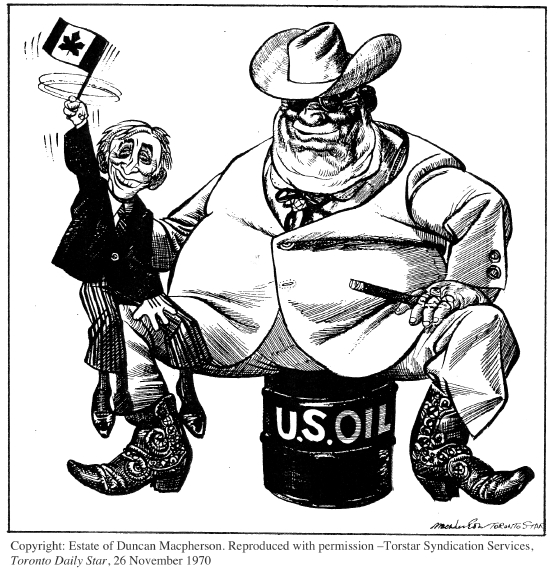
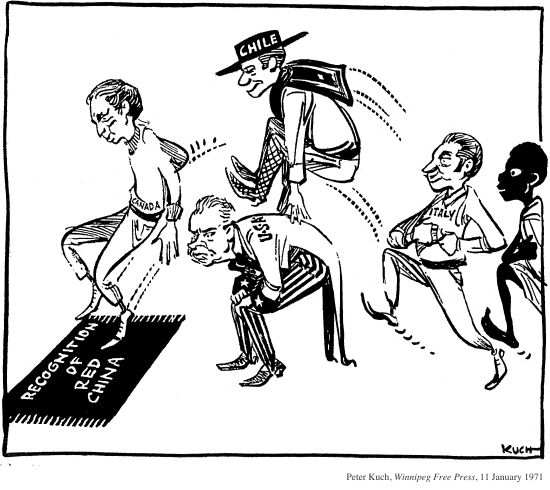
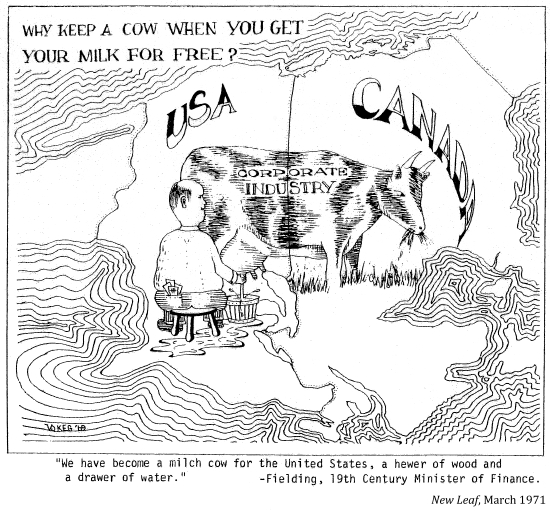
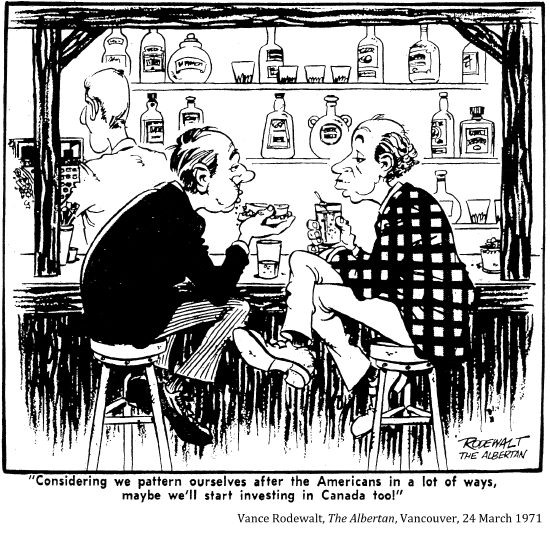
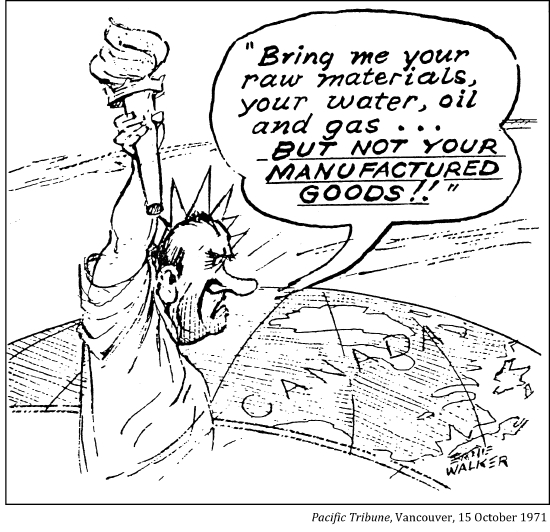
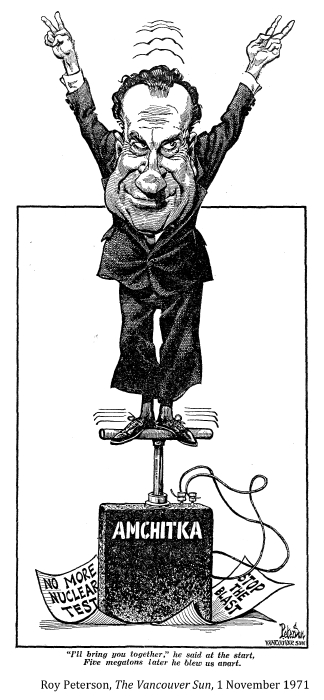
"Having failed to annex us physically or woo us successfully, the Americans, it seemed, had developed a far more subtle and potentially more dangerous tactic; they would dominate our brains, mould our culture in their style, and achieve a bloodless victory. Through American professors, American books, American films, American art curators, they would completely and eternally subjugate us."
Raymond Reid, The Canadian Style, 1971
"The central problem for Canada is how to live in harmony with, but distinct from, the most powerful and dynamic society on earth."
Mitchell Sharp, Globe and Mail, 8 November 1971
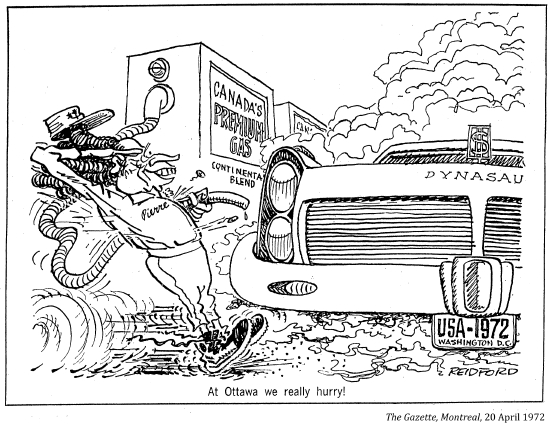
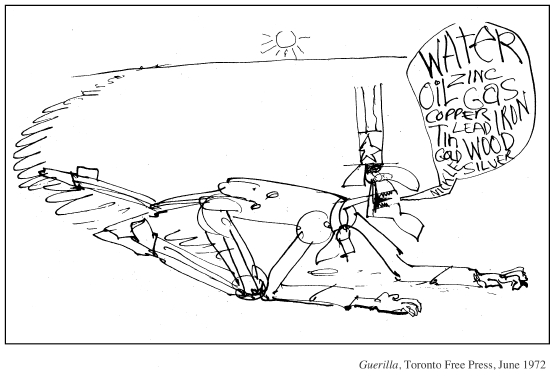
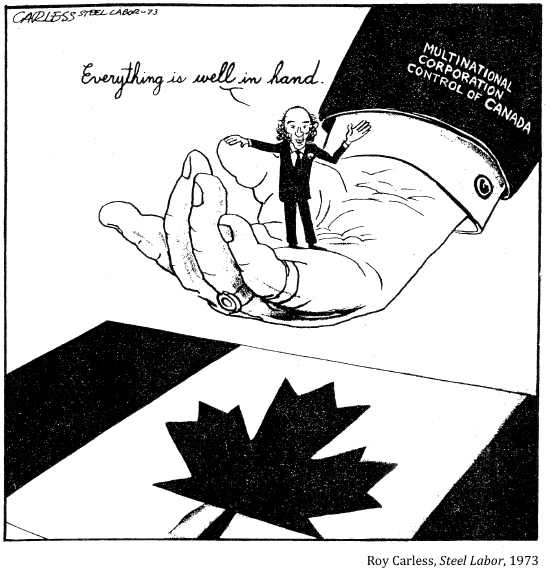
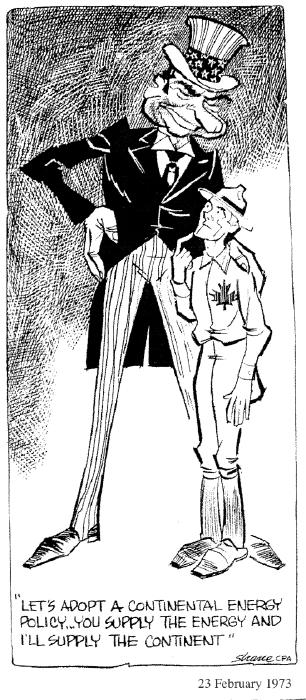
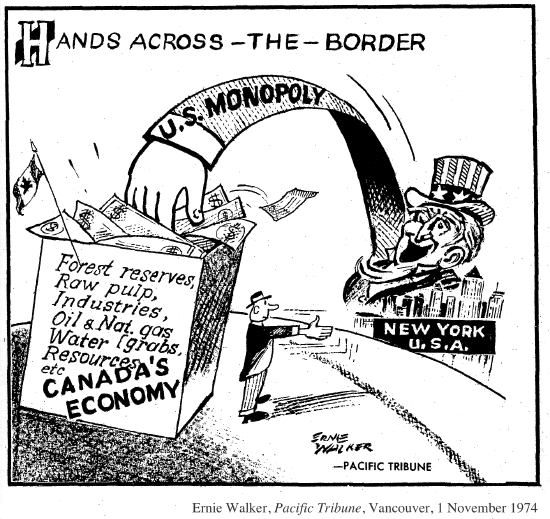
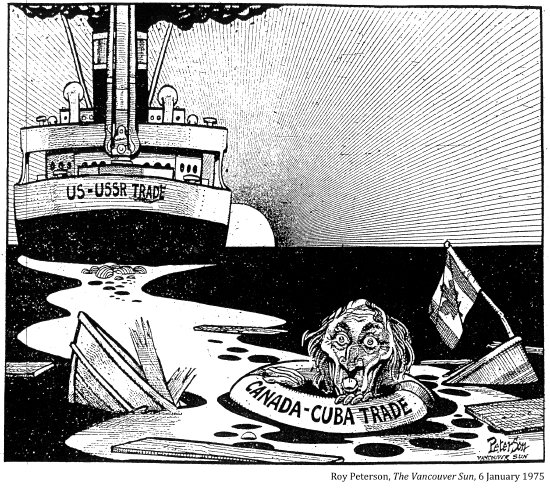
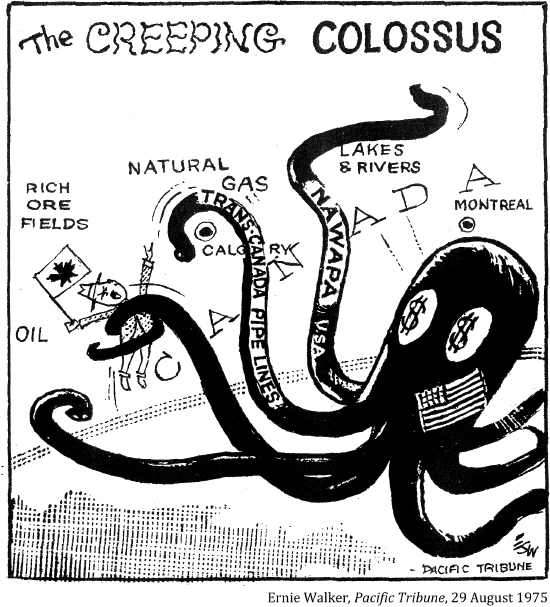
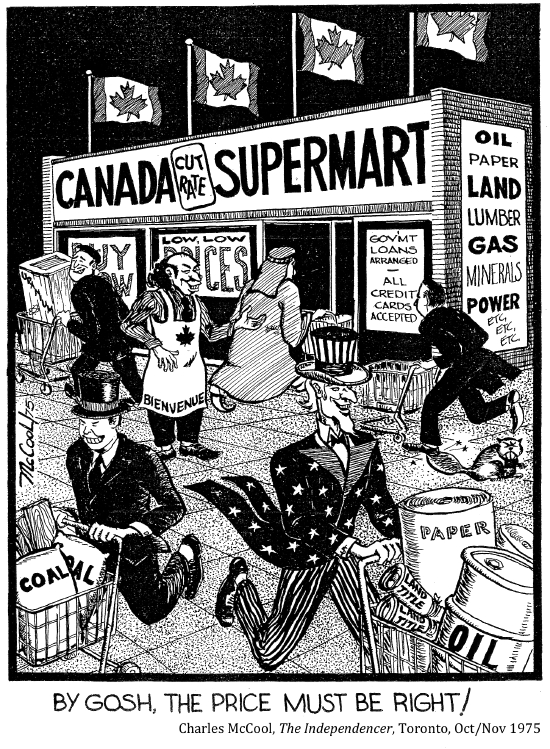
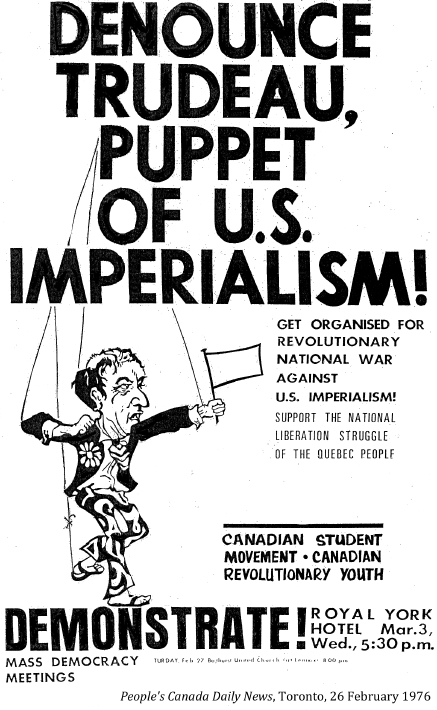
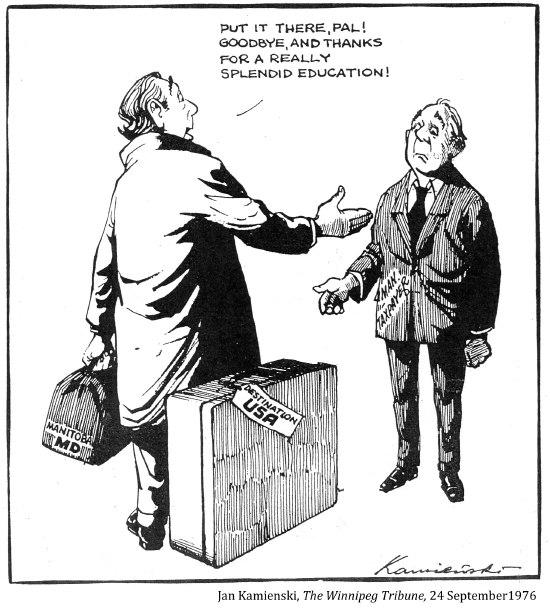
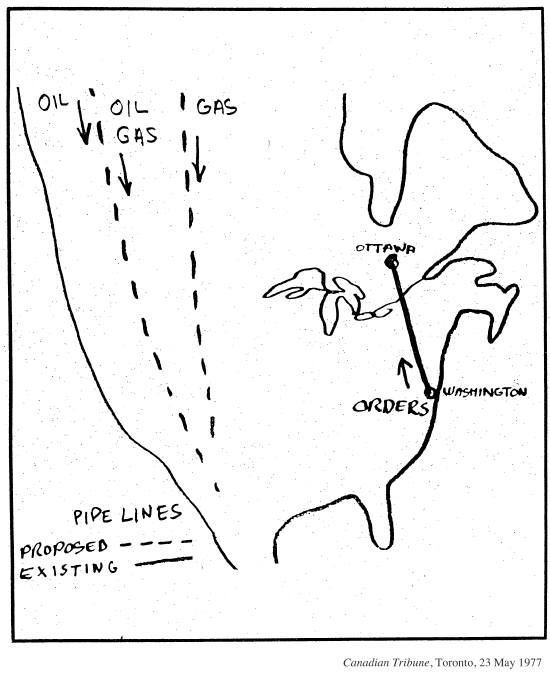
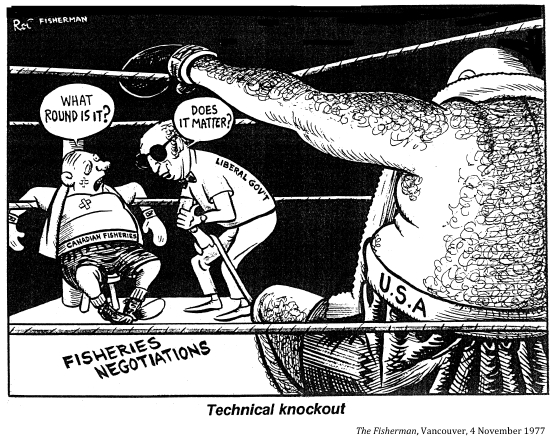
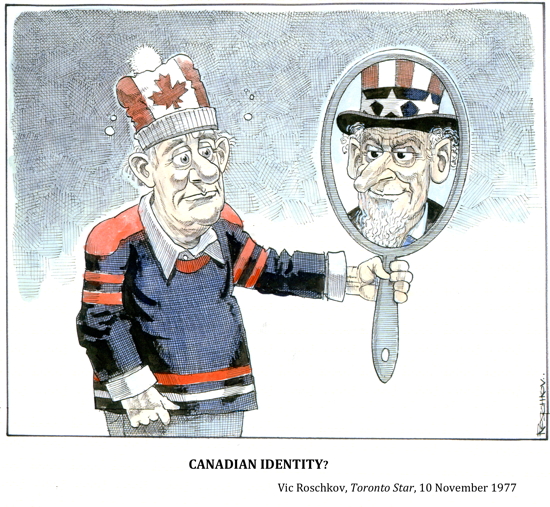
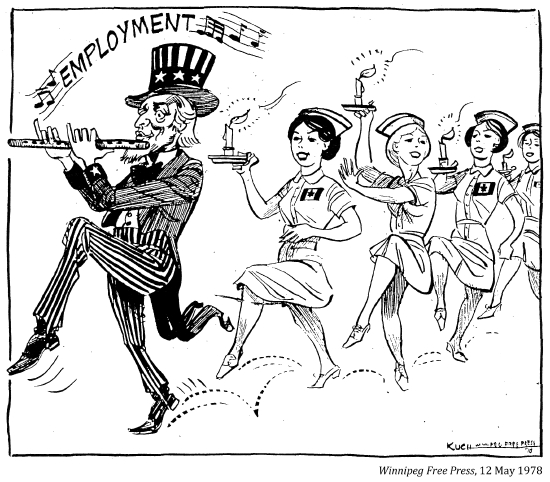
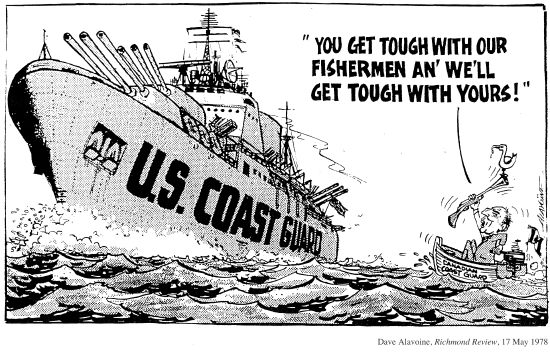
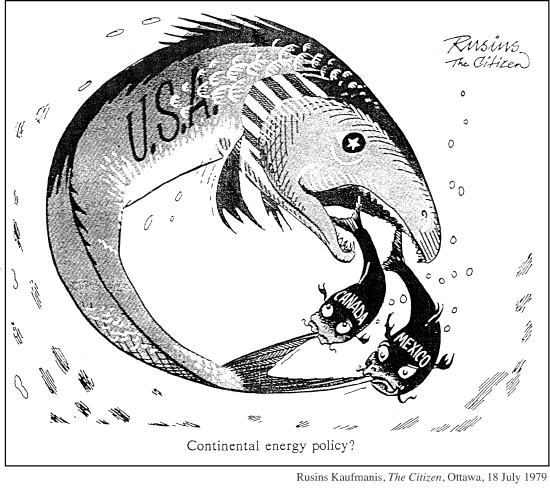
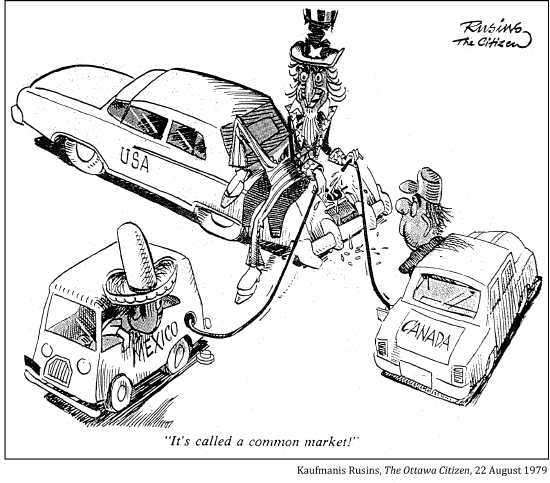
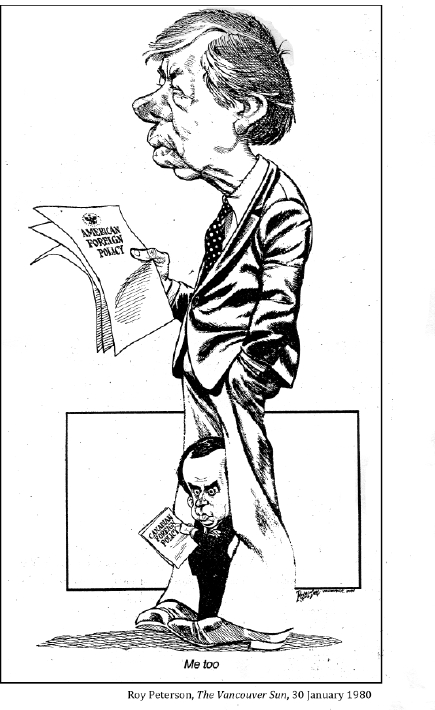
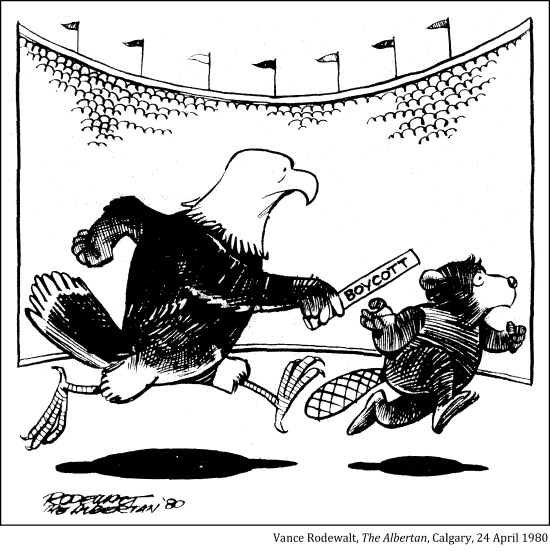
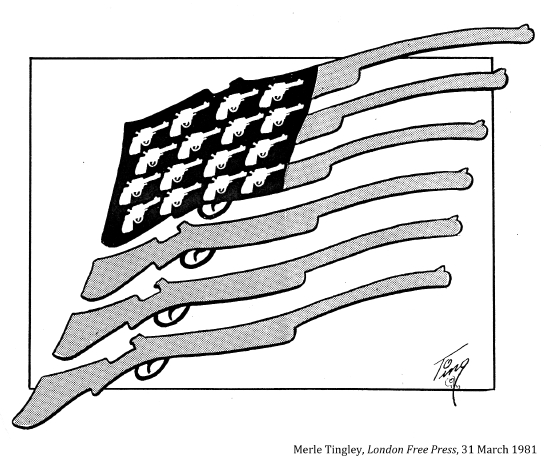
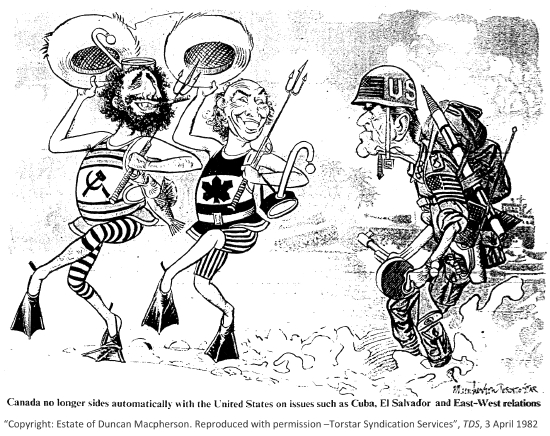
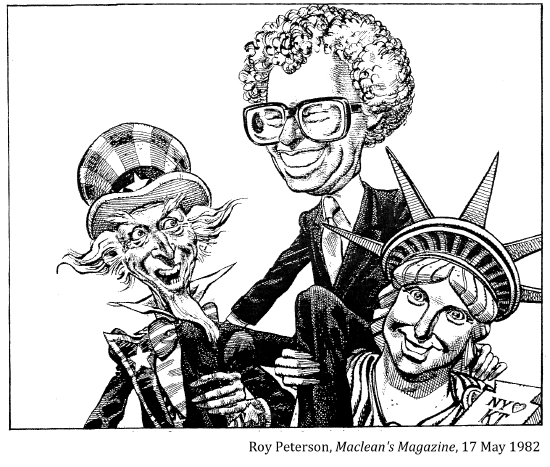
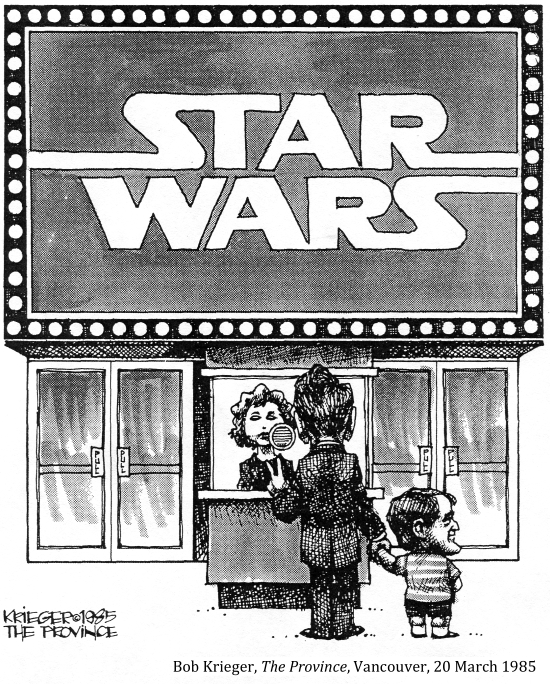
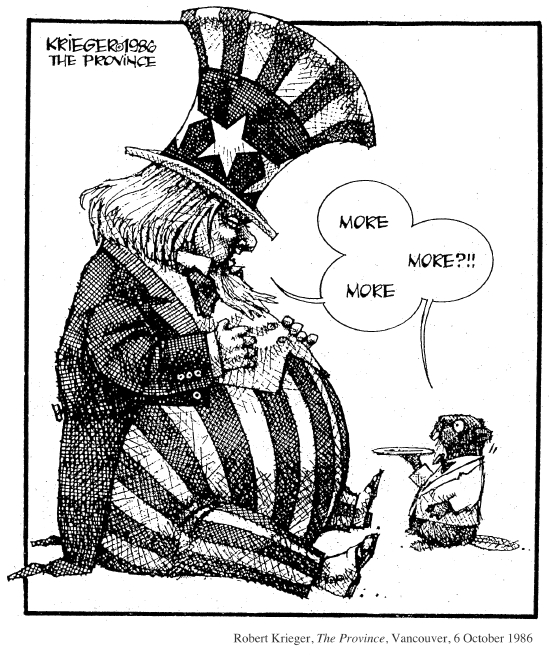
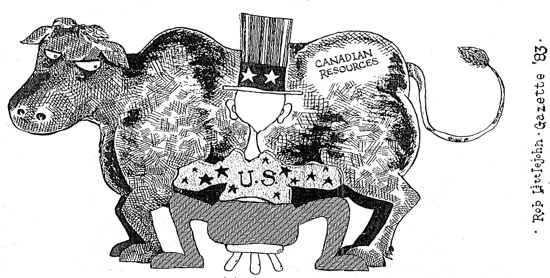
Rob Littlejohn, The Sheaf, Saskatoon, 16 October 1987
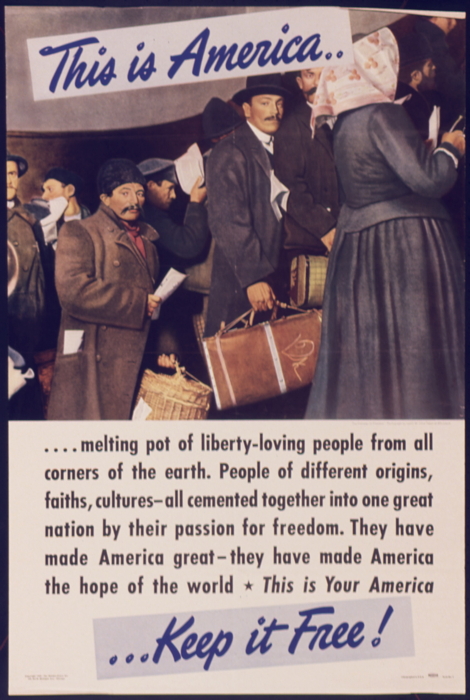
Melting Pot, National Archives at College Park, 1941-45, Public domain, via Wikimedia commons
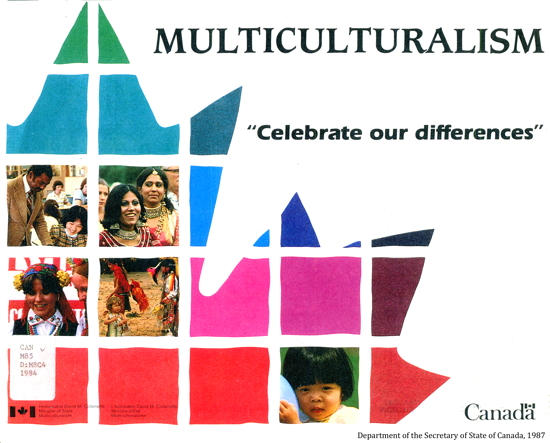
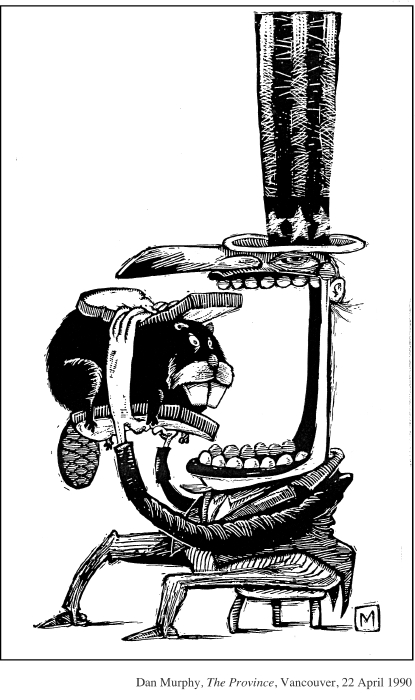
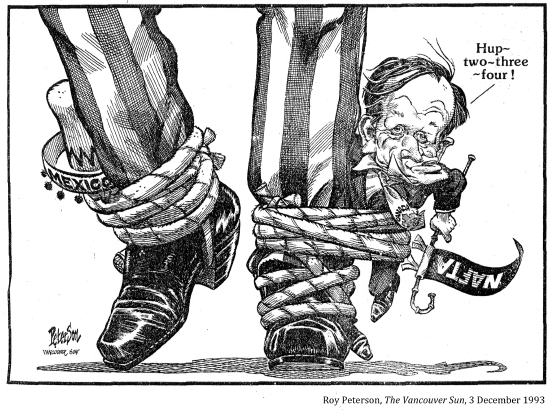
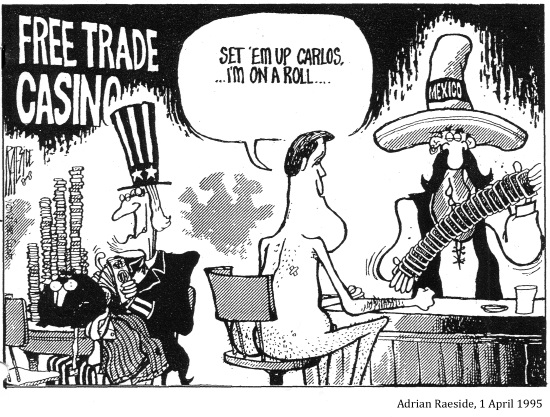
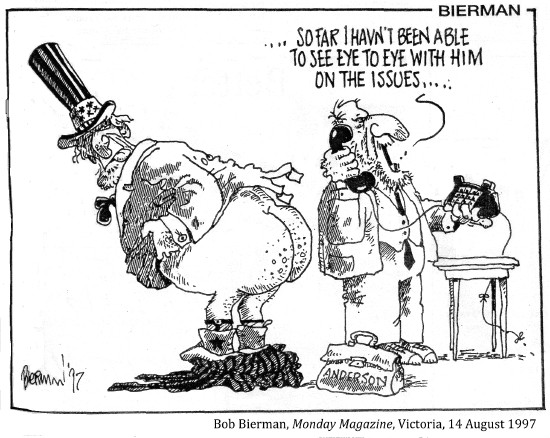
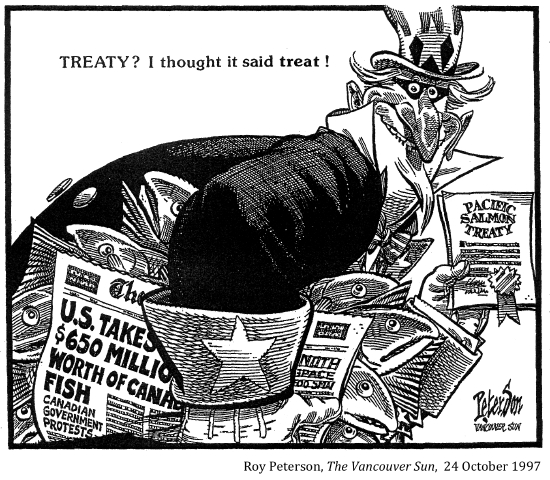
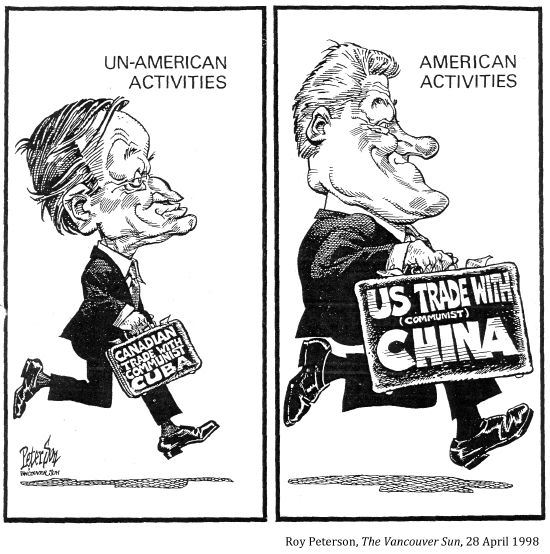
"Without a vibrant feature film industry, we will always and inevitably export our best talent. It is a culturally devastating loss. It is also a preposterous economic waste. Imaging mobilizing our educational system to train doctors, scientists, engineers and entrepreneurs in order to sent the most brillian of them abroad to serve and enrich another economy. This is what we do in film."
Allan King, address, 21 January 1999
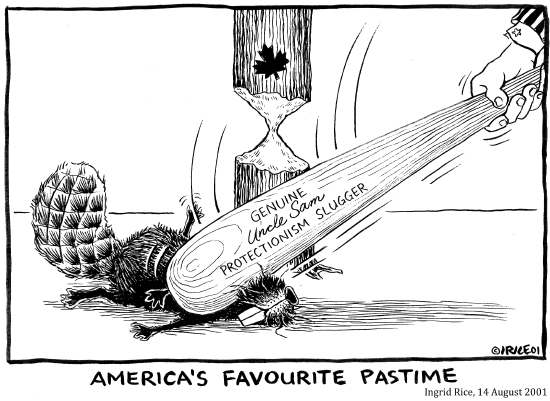

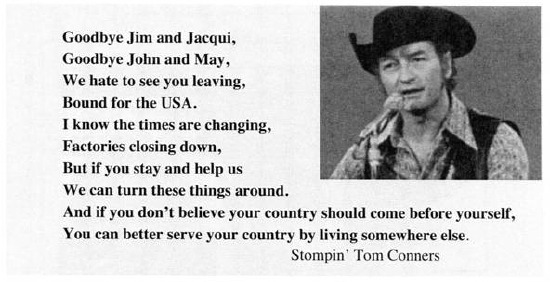
|















































































































































































































